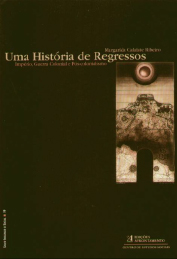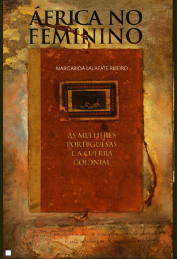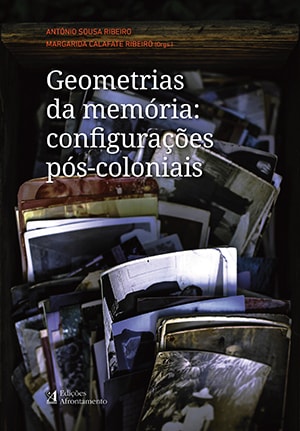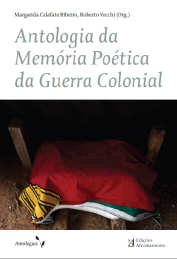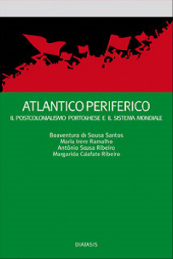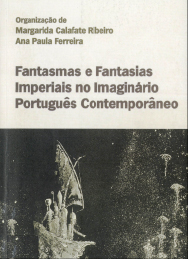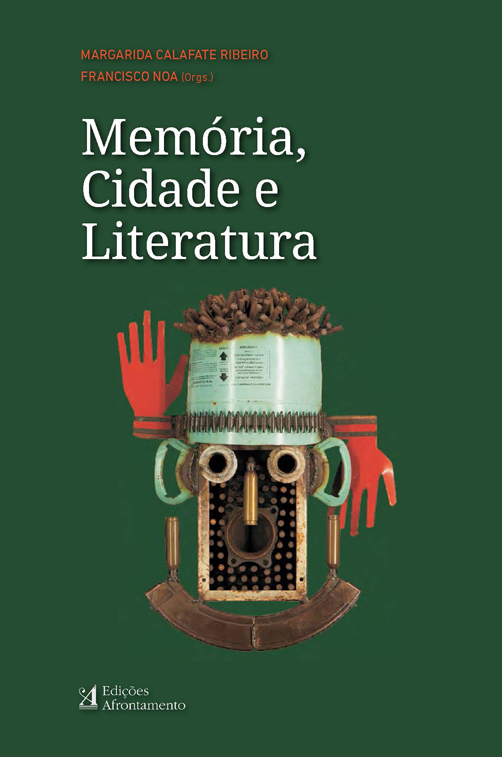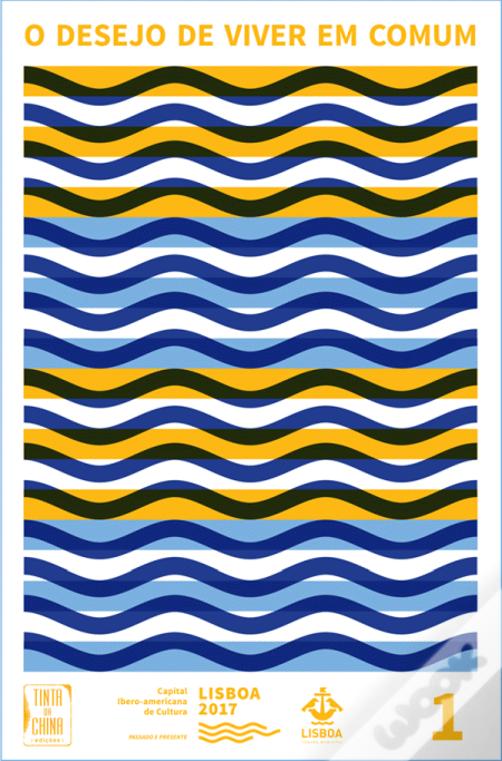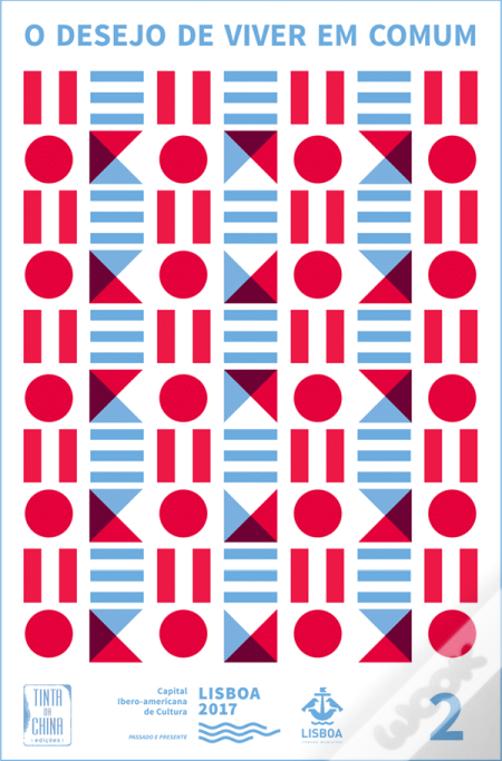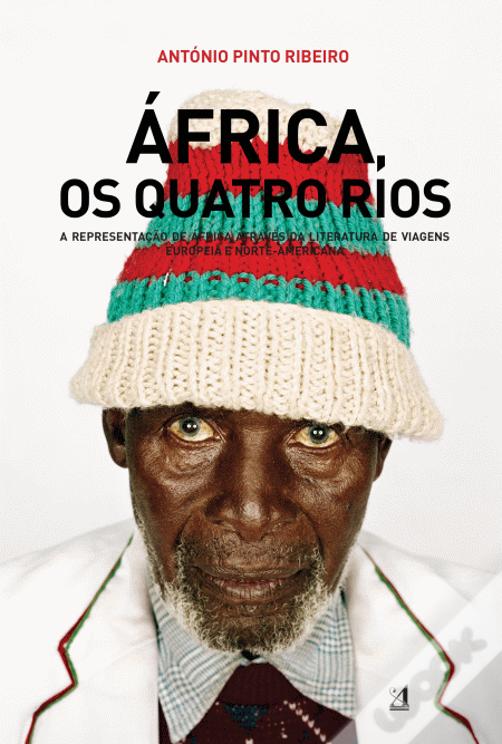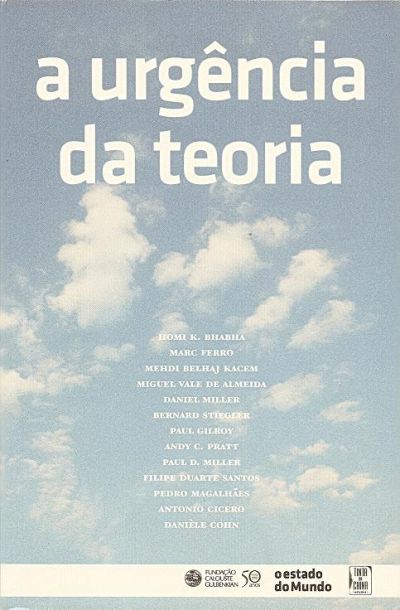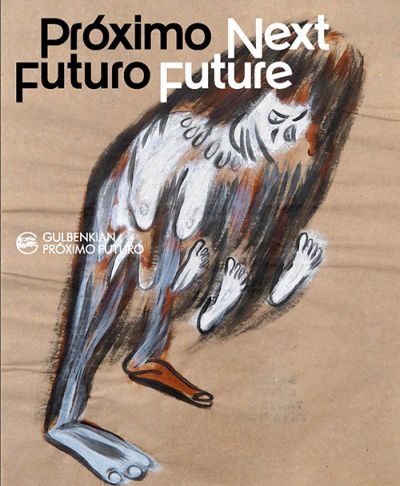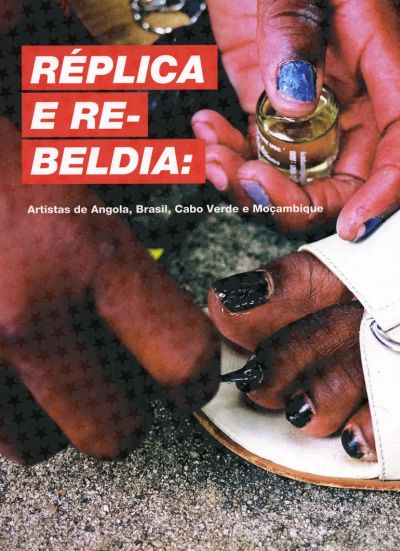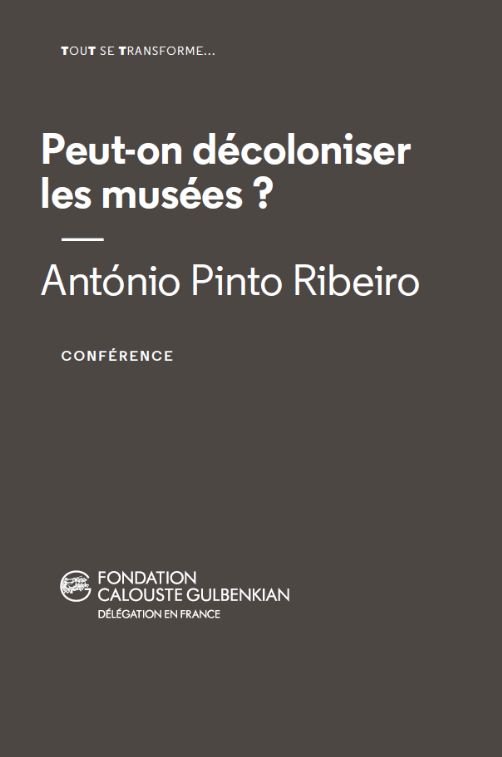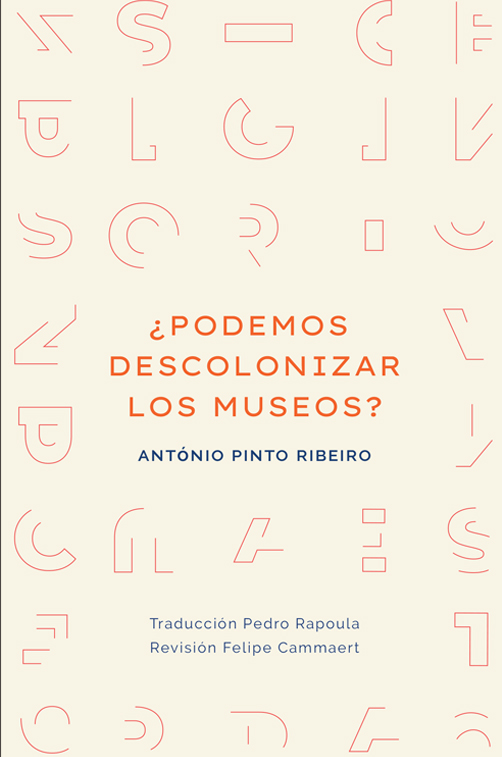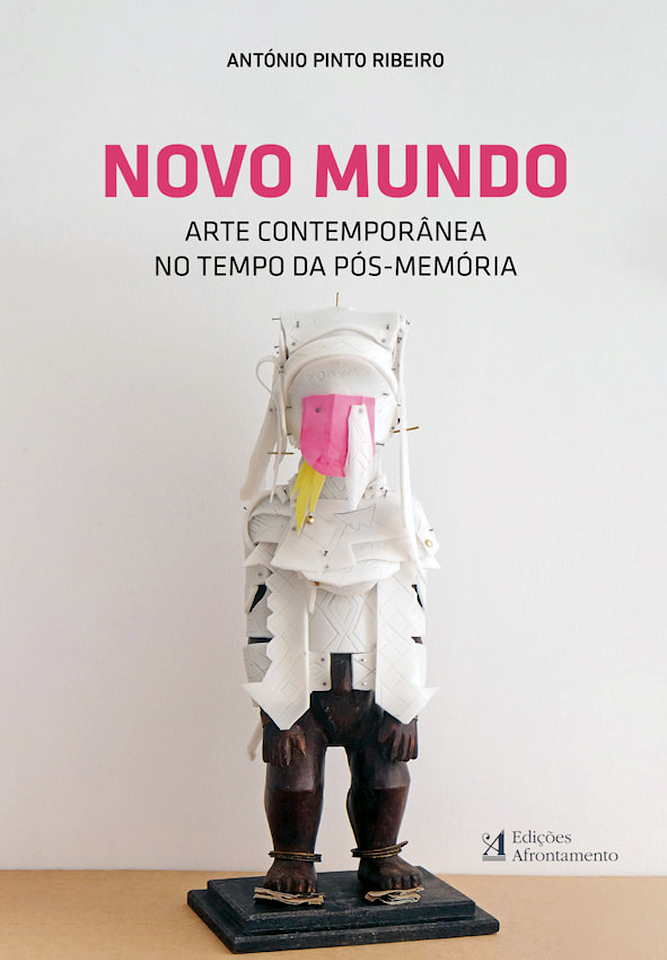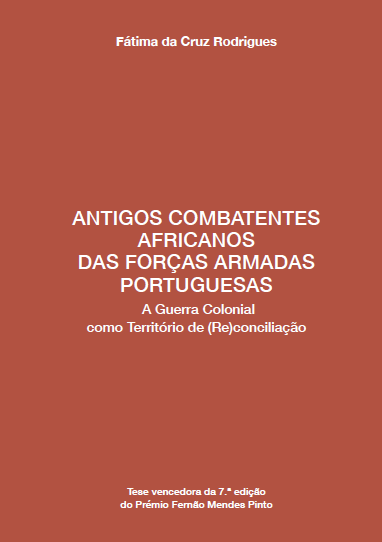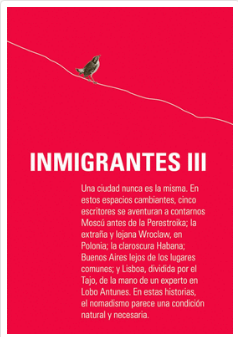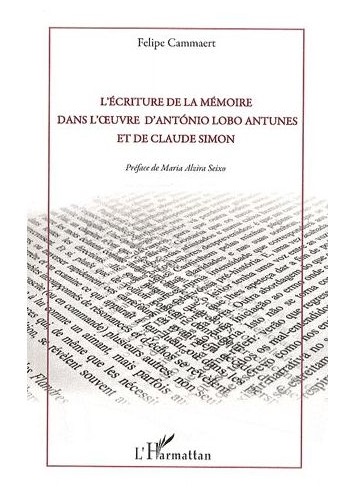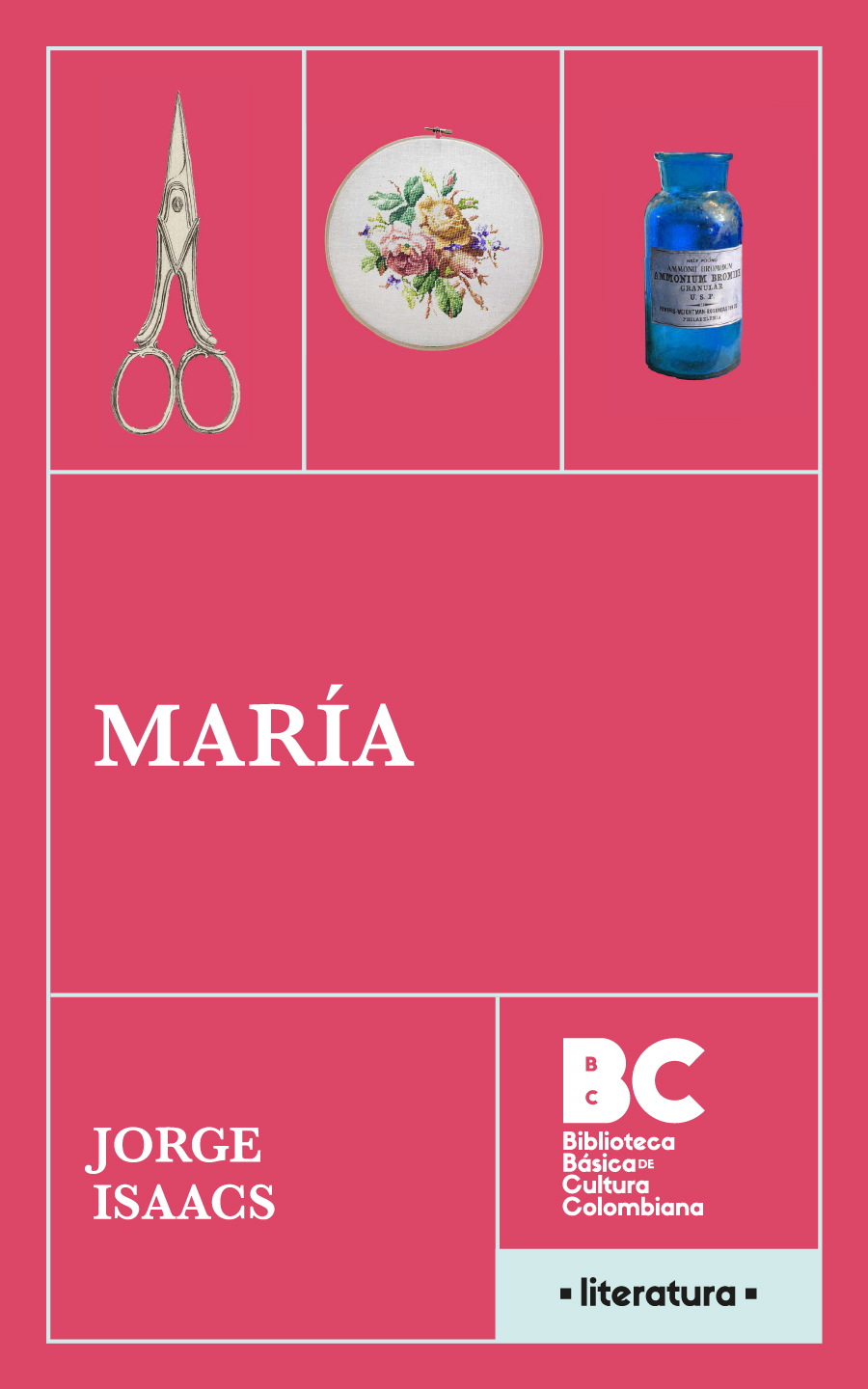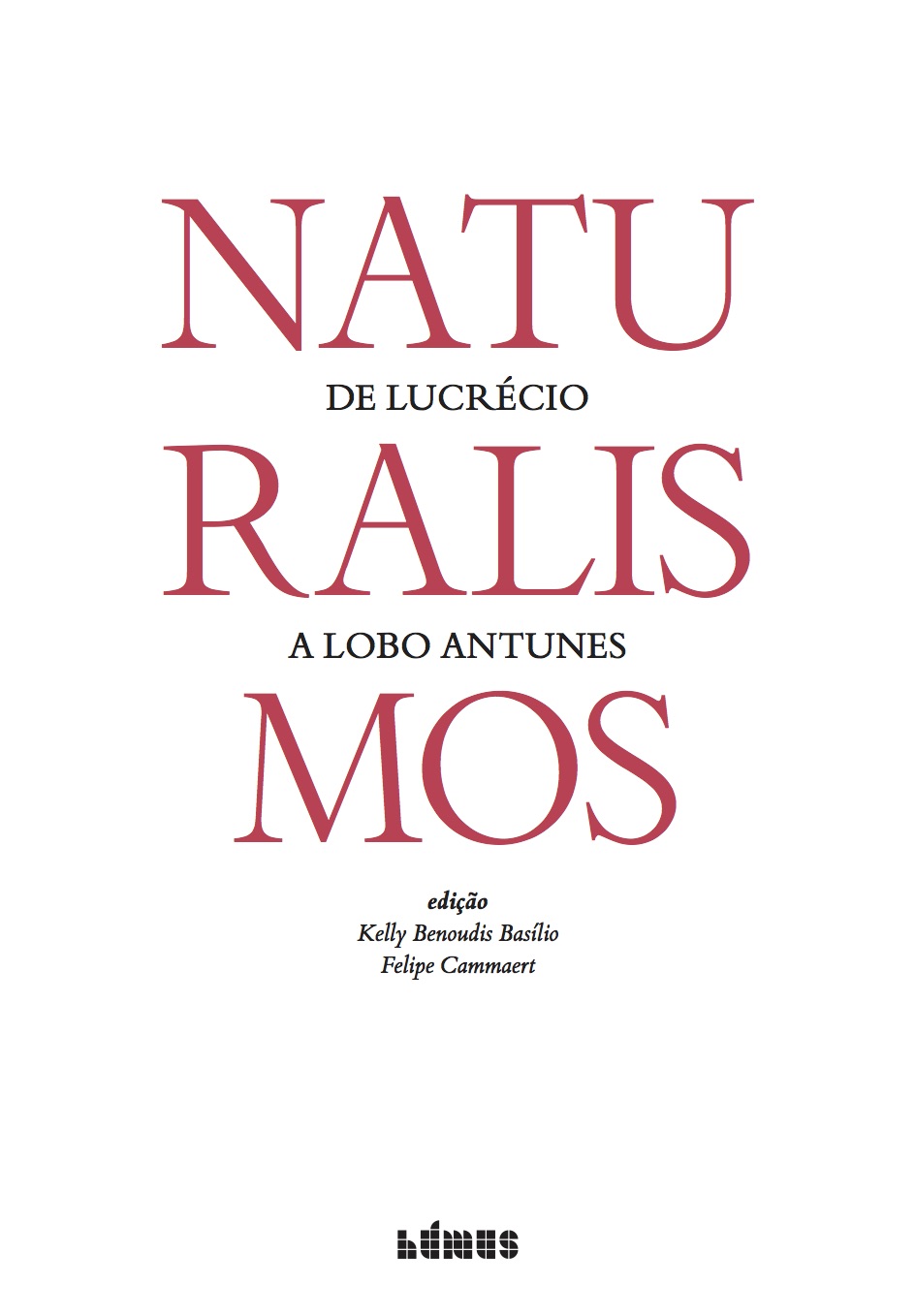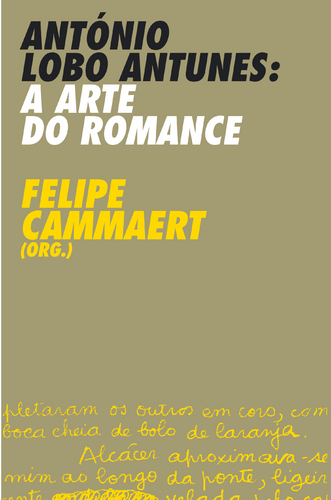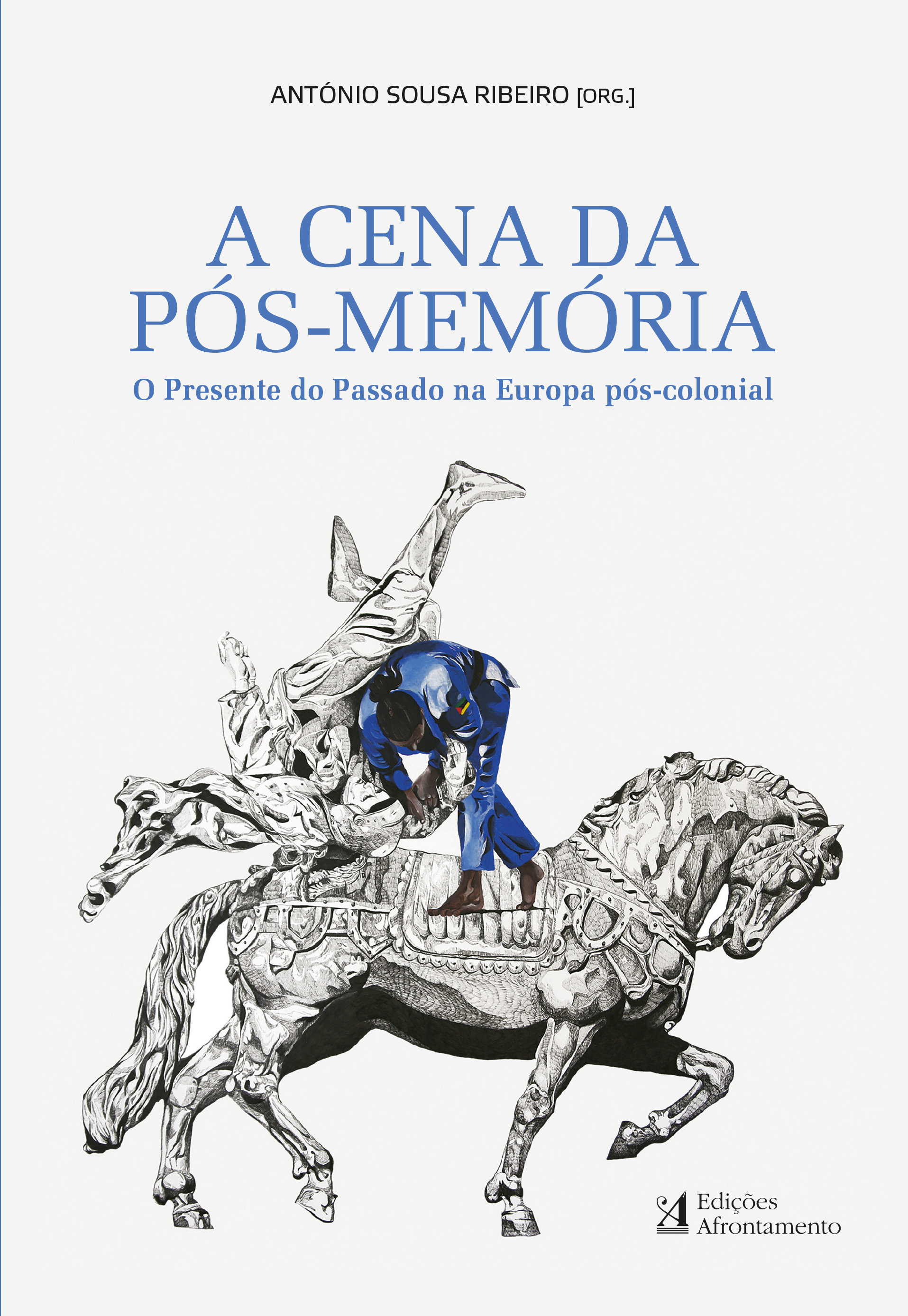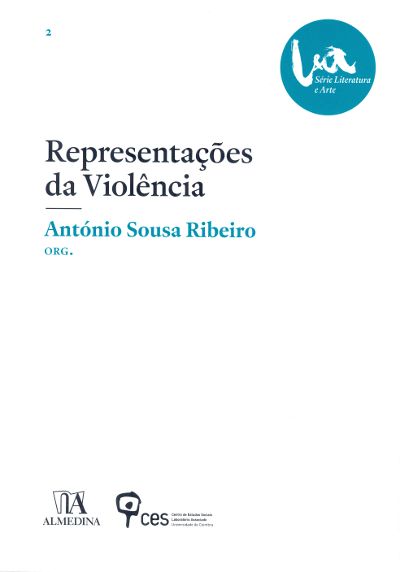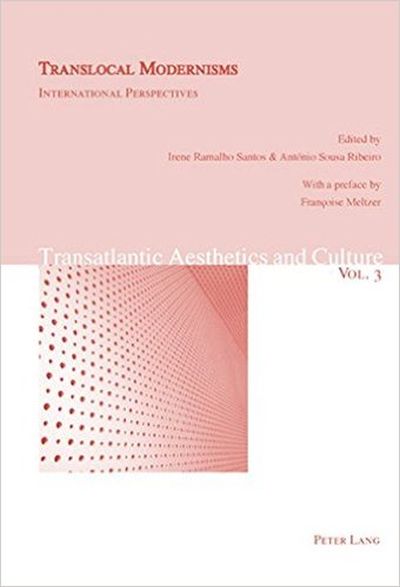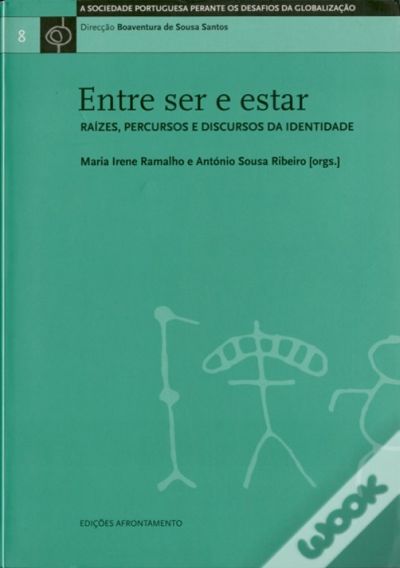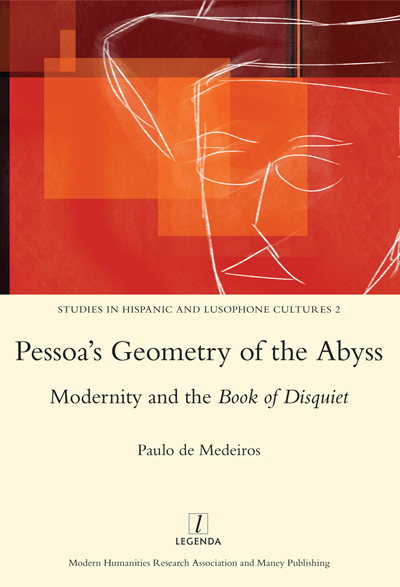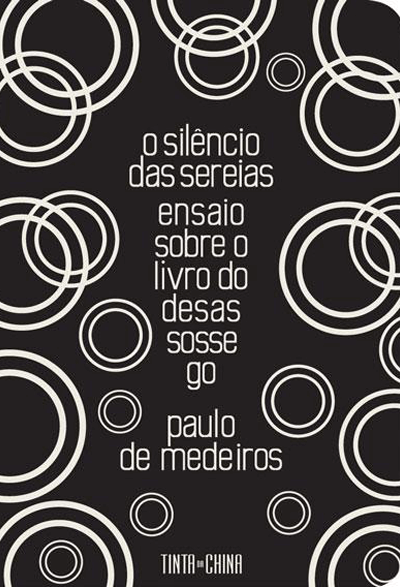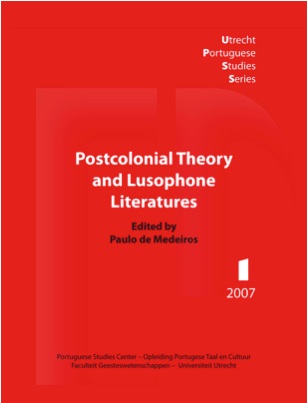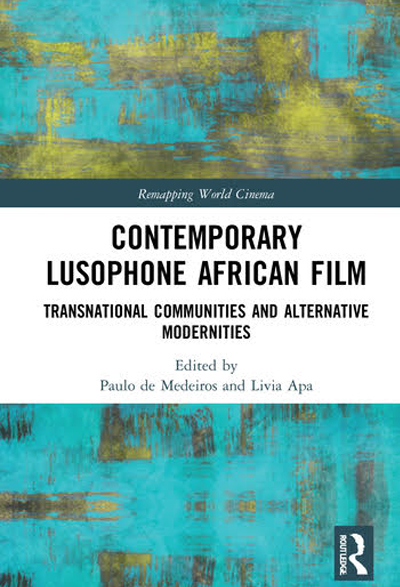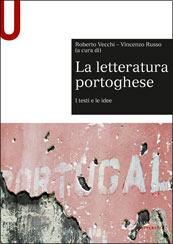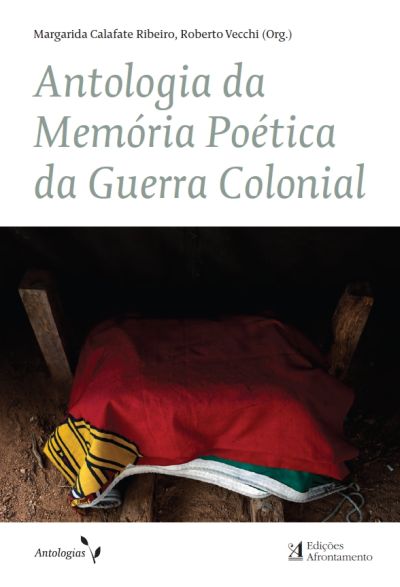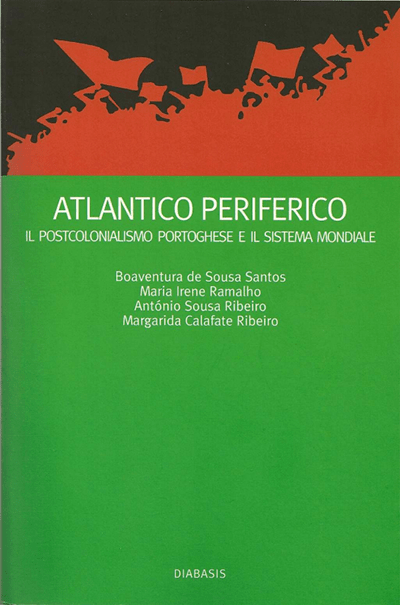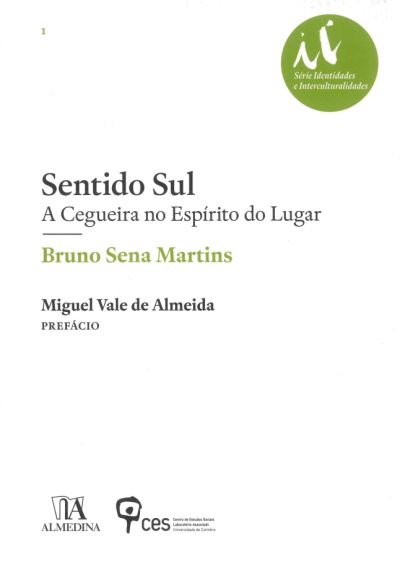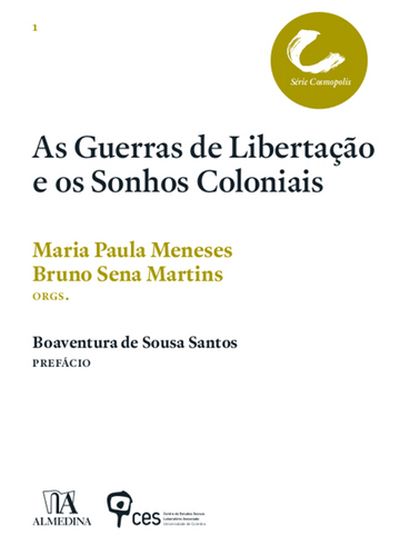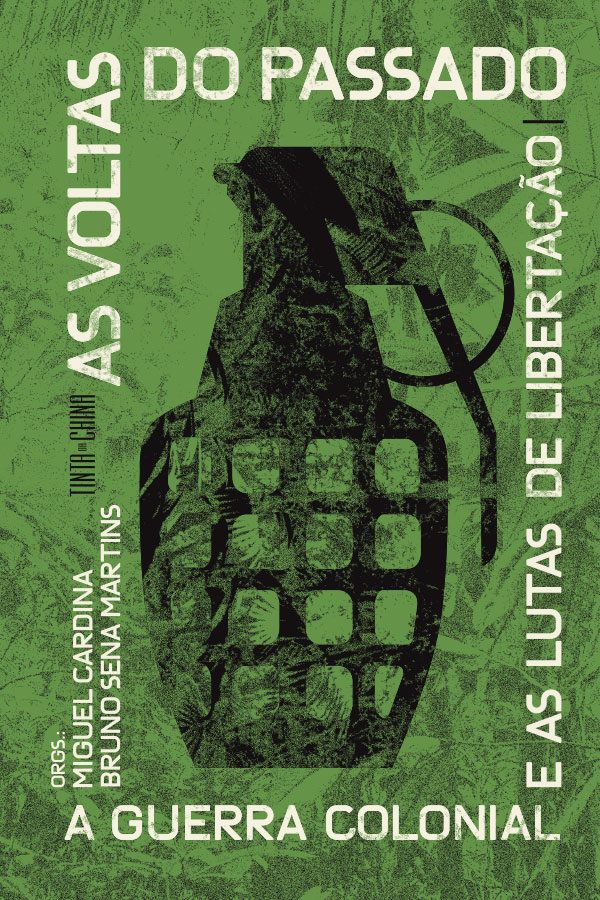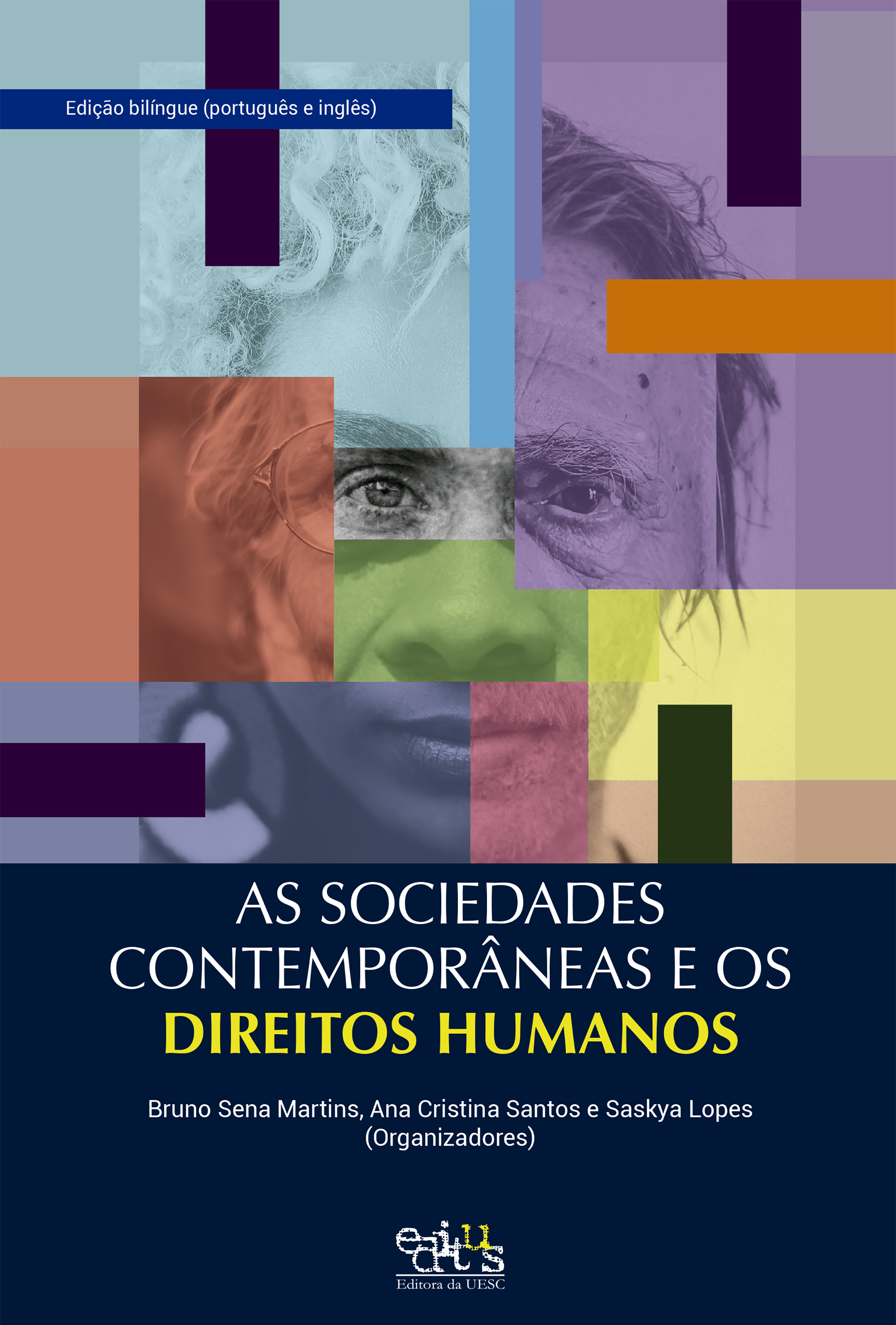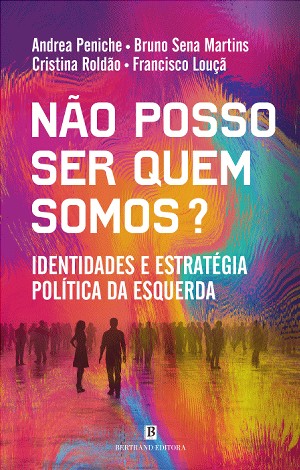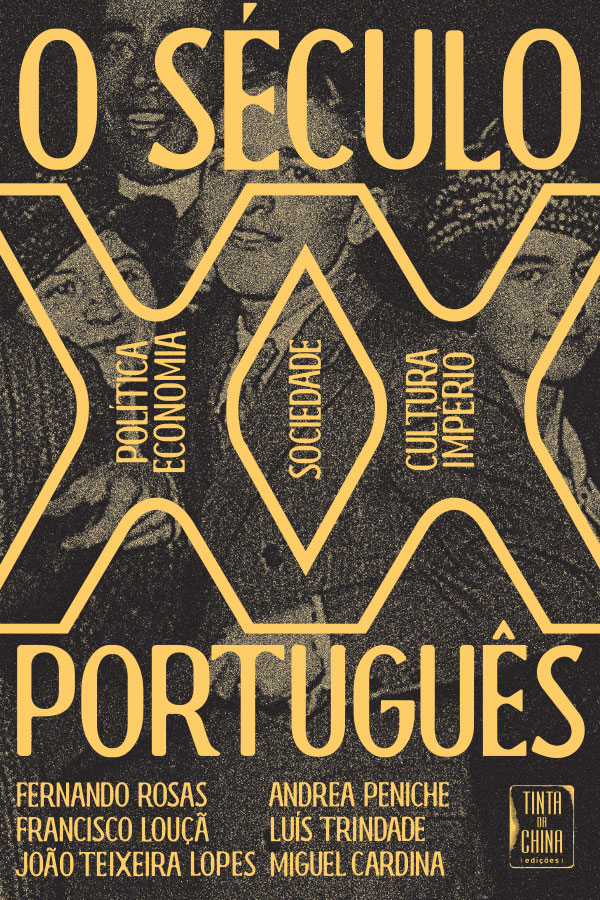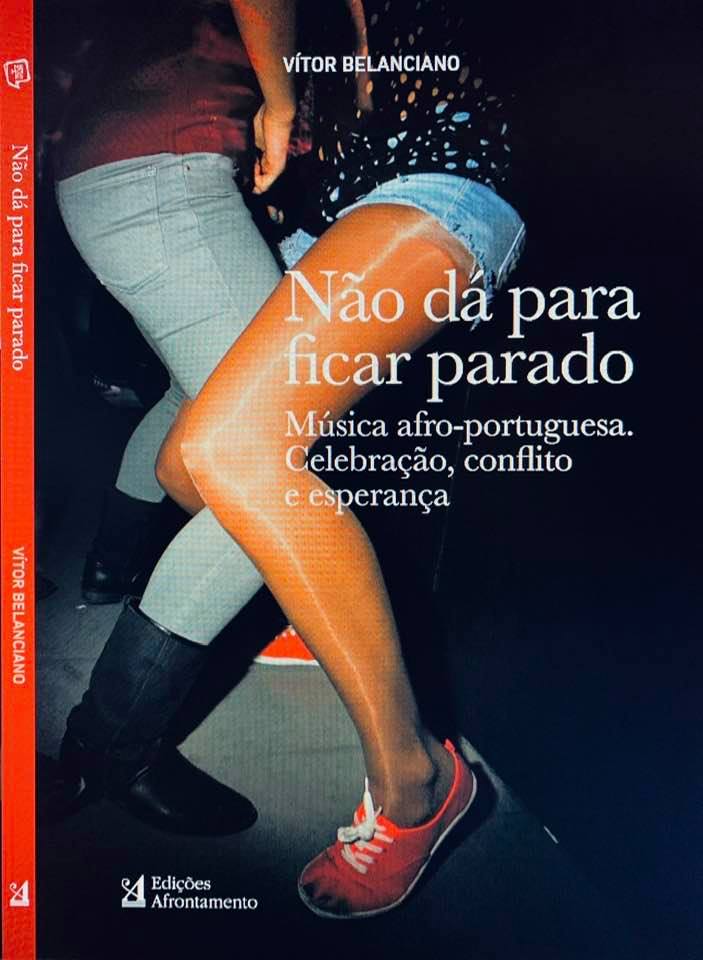
Principal Researcher
Margarida Calafate Ribeiro is a senior researcher at the Centre for Social Studies, University of Coimbra and holds the Eduardo Lourenço Chair at the University of Bologna/ Camões. She specialises in literature and history of the Portuguese empire, politics and heritage, working in the interstices between literary studies and history. Her recent research has been focused particularly on the memory and postmemory of colonialism and empire, identities and postcolonialism, and women and war, in the Portuguese context. In 2015 she was awarded a Consolidator Grant from the European Research Council for the project “MEMOIRS - Children of Empires and European Postmemories”. Her work has been published widely and her seminal study Uma História de Regressos: império, Guerra Colonial e pós-colonialismo (2004) presents the foundations of such interdisciplinary research. It should also be underlined the co-organization of the Antologia da Memória Poética da Guerra Colonial (Anthology of the Poetic Memory of the Colonial War) (2011), O Colonialismo como o nosso impensado (Colonialism as Our Impensado) (2014) with Roberto Vecchi, Geometrias da Memória: Configurações Pós-coloniais (Memory Geometries: Postcolonial Configurations) (2016) with António Sousa Ribeiro, Memória, Cidade e Literatura (Memory, City, Literature) (2019) with Francisco Noa and Heranças Pós-Coloniais nas Literaturas de Língua Portuguesa (Post-Colonial Legacies in Portuguese Language Literatures) (2019) with Phillip Rothwell.
margaridacr@ces.uc.pt RESEARCHGATE ACADEMIA.EDU CES PROFILE
Selected Publications
Books
Other publications
2020 - "Uma história depois dos regressos: a Europa e os fantasmas pós-coloniais" in Confluenze, Rivista di Studi Iberoamericani, V. 12, N. 2, p. 74-95.
2020 - "A marcha obscura da história: 'a França em questão ou o fim da liberdade como boa consciência'" in IBEROGRAFIAS, Revista de Estudos Ibéricos, V. 16, n. 2, p. 389–398.
2020 - "Viagens no contemporâneo – pós-colonialismo, cosmopolitismo e programação" in Viagem, alteridade e tradução cultural , Mulemba, Rio de Janeiro: UFRJ, V. 12, n. 22, p. 127–147.
2020 - "Arte e Pós-Memória – Fragmentos, Fantasmas, Fantasias" in DIACRÍTICA, Revista do Centro de Estudos Humanísticos, V. 34, n. 2, p. 4–20.
2020 - "La restitution des œuvres d’art : un pas décisif dans le processus de décolonisation" in Memoires en Jeu (junho), Paris: Éditions Kimé (com António Pinto Ribeiro).
2019 - "La guerre coloniale portugaise et les générations suivantes: héritages et interrogations" in Mémoires en Jeu, N.10, Winter, p. 123-128.
2019 - “Viagens na Minha Terra de "outros" ocidentais” in Margarida Calafate Ribeiro e Phillip Rothwell (org.), Heranças Pós-Coloniais nas literaturas em língua portuguesa,Porto: Afrontamento, p. 291-307..
2019 - "Os mapas das cidades e as letras que as escrevem – de Luanda e de Maputo" in Margarida Calafate Ribeiro e Francisco Noa (org.), Memória, Cidade e Literatura: De São Paulo de Assunção de Loanda a Luuanda, de Lourenço Marques a Maputo, Porto: Afrontamento, p. 37-61.
2018 - "Inequalities, in other words – literary portrayls of the cities of Luanda and Maputo” in Francisco Bethencourt (ed. by), Social Inequality in the Portuguese-Speaking World - Global and Historical Perspectives, Sussex: Sussex Academic Press.

Researcher| Cultural Programmer
António Pinto Ribeiro is a researcher of the Centre for Social Studies of the University of Coimbra. He was artistic director and curator of several Portuguese cultural institutions, namely Culturgest and the Calouste Gulbenkian Foundation. He was commissioner general of "Past and Present - Lisbon Ibero-American Capital of Culture 2017". His main research interests are in contemporary art, specifically in Africa and South America. His publications include: his latest books Peut-on Décoloniser les Musées? (2019), África os quatro rios - A representação de África através da literatura de viagens europeia e norteamericana (Africa the four rivers - Africa's representation through European and North American travel literature) (2017) and the organization of the two volumes O Desejo de Viver em Comum (The Desire to Live in Common) (2018) in the scope of the Lisbon Conference Ibero-American Capital of Culture 2017. His new book is Novo Mundo – Arte Contemporânea no Tempo da Pós-Memória (2021).
apribeiro@ces.uc.pt CES PROFILE
Selected Publications
Books
Other publications
2020- "Richard Burton, voyageur et « constructeur » colonial », Reflexos, N° 005, Savoirs en circulation dans l’espace atlantique entre les XVIe et XIXe siècles.
2020 - "La restitution des œuvres d’art : un pas décisif dans le processus de décolonisation" in Memoires en Jeu (junho), Paris: Éditions Kimé (com Margarida Calafate Ribeiro).
2020 - “Uma outra necessidade cultural. O contacto com o luxo” in José Soares Neves e Clara Frayão Camacho (org.), Nos 50 anos de L'Amour de L'Art, Dívidas, Críticas e Desafios, Edit Mundos Sociais, p. 11-17.
2019 - "Olhar a energia das cidades" in Margarida Calafate Ribeiro e Francisco Noa (org.), Memória, Cidade e Literatura: De São Paulo de Assunção de Loanda a Luuanda, de Lourenço Marques a Maputo, Porto: Afrontamento, p. 215-216.
2019 - “Negro por fora, vermelho por dentro – o Teatro Griot” in Margarida Calafate Ribeiro e Phillip Rothwell (org.), Heranças Pós-Coloniais nas literaturas em língua portuguesa, Porto: Afrontamento, p. 335-348.
2018 - "Para acabar de vez com a lusofonia", Lusotopie, 17(2), p. 220–226.
2016 - “Podemos descolonizar os museus?” in António Sousa Ribeiro e Margarida Calafate Ribeiro (org.), Geometrias da memória: configurações pós-coloniais, Porto: Afrontamento, p. 95–111.

Post-Doctoral Researcher
Fátima da Cruz Rodrigues is a researcher at the Center for Social Studies, University of Coimbra. She holds a PhD in Sociology from University of Coimbra with the thesis Antigos Combatentes Africanos das Forças Armadas Portuguesas: a Guerra Colonial como Território de (Re)conciliação, with the support of a grant from the Fundação para a Ciência e Tecnologia, winner of the 2014 Fernão Mendes Pinto Award..
She has lecturer at the Lusíada University of Porto and the Faculty of Law of the University of Porto and she is vice chair of Action COST Global Atrocity Justice Constellations (CA18228). Her current recent research interests are various issues related to colonial wars / liberation wars, memory and post-memory, colonization / decolonization/ post-colonialism and crimes committed in war contexts.
fatimarodrigues@ces.uc.pt CES PROFILE ACADEMIA.EDU
Selected Publications
Books
Other publications
2020 - "Dores da Descolonização no Portugal pós-colonial", Confluenze, Rivista di Studi Iberoamericani, V. 12, N. 2, p. 153-168.
2019 - "Vidas deslocadas pelo colonialismo e pela guerra", Dossiê Memórias da Violência Colonial: reconhecimentos do passado e lutas pelo futuro, Estudos Ibero-Americanos, Porto Alegre, v. 45, n. 2, maio-ago, p. 49-63.
2018 - "Crimes Committed in Times of War, Recalled in Post-Memory", Criminal Justice Issues: Journal for Criminalistics, Criminology and Security Studies, Sarajevo, n. 5-6, p. 317-327.
2017 - "Combattants Africains de l'Armée Portugaise pendant les Guerres Coloniales (1961-1974) : représentations et discours coloniaux,", Portuguese Studies Review., 25 (2), p. 275-289 .

Post-Doctoral Researcher
Felipe Cammaert is a researcher at the Centre for Social Studies, University of Coimbra. He holds a PhD in Romance Studies and Comparative Literature from Paris Nanterre University, with a thesis on memory representations in António Lobo Antunes and Claude Simon’s works. He received a research grant from Calouste Gulbenkian Foundation (2017) and a postdoctoral grant from FCT at Centre for Comparative Studies (FLUL, 2008-2014) in comparative literature and contemporary Portuguese literature. He has lectured at University of Picardie (France), University of Lisbon (Portugal) and Los Andes University (Colombia), and was a researcher at the National Library of Colombia. He has translated French and Portuguese contemporary authors into Spanish for Latin America.
felipecammaert@ces.uc.pt CES PROFILE ACADEMIA.EDU
Selected Publications
Books
Other publications
2021 - "'Souvenir from Lisbon': escrita, representação e punctum em António Lobo Antunes'", Santa Barbara Portuguese Studies, V. 6, p. 18-28.
2020 - "A voz das imagens coloniais: arquivos e violência nas obras literárias da pós-memória", Confluenze, Rivista di Studi Iberoamericani, V. 12, N. 2, p. 96-108.
2020 - "Titularidade da experiência e pós-memória nas literaturas pós-coloniais europeias", Revista Letras Raras, Campina Grande, v. 9, n. 2, p. 161-179.
2019 - "A visita da tia Teresa : experiência da guerra colonial e resiliência pela escrita em Os Cus de Judas", Revista Colóquio/Letras, n.º 201, Maio, p. 20-31.
2019 - “Imagens de África na literatura portuguesa “pós-Lobo Antunes”: o olhar da segunda geração sobre a guerra colonial”, in Margarida Calafate Ribeiro | Phillip Rothwell (org.), Heranças Pós-Coloniais nas literaturas em língua portuguesa, Porto: Afrontamento, p. 309-321.
2018 - "Uma viagem sonora pela Lisboa de Fernando Pessoa", Pessoa Plural, 14, p. 398-401.
2018 - "Todas las mujeres portuguesas fueron a la guerra colonial”, in Lídia Jorge, La costa de los murmullos. Bogotá: Ediciones Uniandes, 9-14.
2017 - “Le Cul de Judas d’António Lobo Antunes", in Cécile Brochard (dir.), Expériences de l’Histoire, poétiques de la Mémoire. Paris: Ellipses, 173-224.

Post-Doctoral Researcher
Fernanda Vilar is a researcher at the Centre for Social Studies, University of Coimbra. Her research interests are postcolonial, postmemory, cultural, subaltern and peripheral studies. She is writing a book about peripheral art in Lisbon, Paris and Brussels. She is particularly interested in Slam poetry. She holds a Ph.D. in Comparative African Literature from Paris Nanterre University (2015), in the same year she was selected by UNO's Academic Impact Hub. She worked at the European Commission's interpreting service (2016). She received an excellence scholarship for her Master at Ecole Normale Supérieure de Lyon, where she was a lector of Portuguese as a foreign language (2010-2012). She taught Portuguese at University of Marne la Valée (2012-2013).
fernanda.vilars@gmail.com CES PROFILE ACADEMIA.EDU
Selected Publications
Other publications
2020 - “The Ghosts of Ngungunyane: Constructing an ambivalent hero”. in Kristian Van Haesendonck (org.), Wor(l)ds of Mia Couto. Peter Lang, p. 143-164.
2020 - "Slam: periferia, pós-memória e identidade", Confluenze, Rivista di Studi Iberoamericani, V. 12, N. 2, p. 135-152.
2019 - "As palavras fantasmas de Amílcar Cabral”, in Philip Rothwell e Margarida Calafate Ribeiro (org), Heranças Pós-Coloniais nas literaturas em língua portuguesa, Porto: Afrontamento, p. 273-290.
2019 - "Migrações e periferias: o levante do slam", Estudos de Literatura Brasileira Contemporânea, Brasília, n. 58, e588, p. 1-13.
2019 - “Facing ghosts: Lumumba’s shadows” in Tony Chafer and Natalya Vince(org), The Routledge Handbook of Francophone Africa.
2018 - “A África no cânone na literatura lusófona pós-colonial”, Revista Digital do Programa de Pós-Graduação em Letras da PUCRS, v. 11, n. 1: 55-64.
2017 - "A linguagem tropical de Sony Labou Tansi", Revista Non Plus, 6(12): p. 201-215.
2017 – "A escrita da violência em Mia Couto, Sony Labou Tansi e J. M. Coetzee", e-cadernos, n. 26, 92-111.

PhD Student | Project Manager
Hélia Santos is a junior researcher at the Centre for Social Studies, University of Coimbra. She holds an MA degree in Sociology from the postgraduate programme on “Postcolonialism and Global Citizenship”, offered by CES and School of Economics, University of Coimbra. Her research interests are focused on postcolonial studies and identities, postcolonial education, and memory studies. She is part of the MEMOIRS team as PhD candidate and project manager. She works at the CES Project Management Office of (GAGEP) since 2012.

Associate Researcher
António Sousa Ribeiro is full professor for German Studies at the Faculty of Arts and Humanities of the University of Coimbra and the director of the Centre for Social Studies at the same university. His research interests focus on German and Austrian studies, studies of violence, memory studies, postcolonial studies and comparative cultural studies. Recent publications: Representações da Violência (2013), Geometrias da Memória: configurações pós-coloniais (2016); Einschnitte. Signaturen der Gewalt in textorientierten Medien (2016). He is also active as a literary translator.
Selected Publications
Books
Other publications
2020 - "The Silence of the Perpetrators, The (Post)colonial Museum as a Crime Scene", in Vicente Sanchez-Biosca et al. (org.), Crime Scenes and Sites of Memory. Berlim: De Gruyter.
2017 - "O cómico e a violência: a autoridade da vítima", in Isabel Caldeira et al. (org.), The edge of one of many circles: homenagem a Irene Ramalho Santos. Coimbra: Imprensa da Universidade de Coimbra, 449-462
2016 - "Reversos da modernidade: Colonialismo e Holocausto", in António Sousa Ribeiro; Margarida Calafate Ribeiro (org.), Geometrias da Memória: Configurações Pós-Coloniais. Porto: Afrontamento, 43-58

Associate Researcher
Paulo de Medeiros is Professor of English and Comparative Literature at the University of Warwick. He has taught at several universities in Portugal, Brazil, Spain and the Netherlands. He is a honorary member of the Institute for Research in Modern Languages at the School of Advanced Studies of the University of London and he was the president of the American Portuguese Studies Association. His research interests are: post-colonialism, memory, literary theory, Portuguese-language literature and cinema. Among his books stand out: Pessoa's Geometry of the Abyss: Modernity and the Book of Disquiet, (Legenda, 2013), O Silêncio das sereias - Ensaio sobre o Livro do Desassossego, (Tinta da China, 2015) and Contemporary Lusophone African Film: Transnational Communities and Alternative Modernities, with Lívia Apa, (London and New York: Routledge, 2021).
p.de-Medeiros@warwick.ac.uk PROFILE ACADEMIA.EDU
Selected Publications
Books
Other Publications
2020 - "Herança de sombras: memória, pós-memória e responsabilidade em ‘Os Memoráveis’ de Lídia Jorge",Colóquio/LetraS, Fundação Calouste Gulbenkian, p. 79–97.
2020 - "Memórias Pós-imperiais: Luuanda, de José Luandino Vieira, e Luanda, Lisboa, Paraíso, de Djaimilia Pereira de Almeida", Revista Língua-lugar: Literatura, História, Estudos Culturais, n. 01, p. 136-149.
2019 - "Translation and Cosmopolitanism", in Ed. Susan Bassnett, Translation and World Literature. London: Routledge, 60-74.
2018 - “Postimperial Lisbon”, in Eds. Doris Wieser and Ana Filipa Prata (eds.), Cities of the Lusophone World: Literature, Culture, and Urban Transformations. Oxford: Peter Lang, 195-215.
2018 - “Postcolonial Memories and the Shattered Self”, in Salhia Ben-Messahel and Vanessa Castejon (eds.), Colonial Extensions, Postcolonial Decentrings. Brussels: Peter Lang, 2018. 21-38.
2018 - “‘Exit Ghost’: Reading Lusotropicalism as Fetish (with Adorno)”. Portuguese Studies Review (Canada) 26.1, 247-271.
2018 - “Lusophony or the Haunted Logic of Postempire”, Lusotopie, XVII (2), 227-247.
2017 - “Lusophonistik” (69-70); “Portugiesischsprachige Literatur” (381-385); Anhang: Portugal” (420-423), in Dirk Göttsche et al (eds.). Handbuch Postkolonialismus und Literatur. Stuttgart: J.B. Metzler.

Associate Researcher
Roberto Vecchi is a Full Professor of Portuguese and Brazilian Literatures at the University of Bologna, where he coordinates the Eduardo Lourenço Chair with the support of Instituto Camões. He is an associate researcher of the Centre for Social Studies and specialises in trauma literature, literature of the Portuguese Colonial War, and representations of postcolonial Lusophone cultures. His critical analysis of poetry and literature of the colonial wars (cf. his book Exceção Atlântica: Pensar a Literatura da Guerra Colonial, 2010) has dialogued with Margarida Calafate Ribeiro’s former work on the memories of the final phase of Portuguese empire. Together, they collected and organized essays on Portuguese and European colonialism by Eduardo Lourenço, publishing the book Do Colonialismo como Nosso Impensado (2014) and with Vincenzo Russo La letteratura portoghese. I testi e le idee (2017).
roberto.vecchi@unibo.it PROFILE
Selected Publications
Books
Other publications
2020 - “A impossível memória de Araguaia: um patrimônio sem memorial?”, in Rejane Pivetta de Oliveira e Paulo C. Thomaz (org.), Literatura e Ditadura, Porto Alegre: Zouk, pp.45-58.
2020 - "A nostalgia colonial no País da saudade: fantasmagorias e pós-memória", Confluenze, Rivista di Studi Iberoamericani , V. 12, N. 2, p. 169-181.
2020 - "A arte do pensamento de Eduardo Lourenço: a saudade e a transformação do mundo'", IBEROGRAFIAS, Revista de Estudos Ibéricos, N. 16, n. 2, p. 375–384.
2019 - “Uma política da filosofia no pensamento africano: Amílcar Cabral e a metafísica da resistência”, in Margarida Calafate Ribeiro e Phillip Rothwell (org.) Heranças Pós-Coloniais nas literaturas em língua portuguesa, Porto: Afrontamento, pp. 263-272.
2019 - "Genius loci e a imprescritibilidade do mito: arquiteturas simbólicas em tramas urbanas pós-coloniais (Luanda e Maputo)", in Margarida Calafate Ribeiro e Francisco Noa (org.), Memória, Cidade e Literatura: De São Paulo de Assunção de Loanda a Luuanda, de Lourenço Marques a Maputo, Porto: Afrontamento, pp. 201-211.
2019 - “Um pensamento meridiano: o Atlântico Sul e as articulações teóricas luso-brasileiras”, in Ida Alves e Gilda Santos (org.), Relações luso-brasileiras - imagens e imaginários, Rio de Janeiro: Editora Oficina Raquel, 75-88.
2016 - “Subalternidades no(s) Atlântico(s) Sul”, in António Sousa Ribeiro e Margarida Calafate Ribeiro (org.), Geometrias da memória: configurações pós-coloniais, Porto: Afrontamento
2016 - “Os fins do tempo do fim: descolonização, negação, pertença”, Altre modernità/ Otras modernidades/ Autres modernités/ Other Modernities
2015 – “L'être singulier pluriel du post-colonialisme portugais”, Les Langues Néo-Latines, 108e année-2-n.º 369, Avril-Juin 2014 : 17-29.

Research Collaborator
Bruno Sena Martins is an anthropologist with a PhD in sociology and senior researcher at the Centre for Social Studies. His research interests focus on the topics of body, post-colonialism, Portuguese Colonial Wars, embodied experience and social memory. He has undertaken ethnographic fieldwork in Portugal with disabled veterans of the Portuguese colonial wars, and in Mozambique, where he studied the experience of blindness, published as Sentido Sul: a cegueira no espírito do lugar (2013). He is also co-editor of As Guerras de Libertação e os Sonhos Coloniais: Alianças secretas, mapas imaginados (with Maria Paula Meneses) (2013).
bsenamartins@ces.uc.pt CES PROFILE
Selected Publications
Books
Other publications
2020 - "A Guerra Colonial portuguesa na democratização da história: corpos, subjetividades e violência", in Gilvan Veiga Dockhorn João Paulo Avelãs Nunes Diorge Alceno Konrad (org.), Brasil e Portugal. Ditaduras e transições para a democracia. Imprensa da Universidade de Coimbra, p. 241-260.
2020 - "Lutas identitárias e transformação social: dignidades, corpos e alianças", in Andrea Peniche; Bruno Sena Martins; Cristina Roldão; Francisco Louçã (org.), Não Posso Ser Quem Somos? Identidades e Estratégia Política da Esquerda. Lisboa: Almedina, p. 137-167.
2020 - "Direitos Humanos e História do Tempo Presente [Entrevista]", Revista Tempo e Argumento, 12, 30, e0401.
2019 - "A democracia como resgate da memória: a Guerra Colonial portuguesa e a justiça histórica", in Jose Luis Bolzan de Morais (org.), A democracia sequestrada. São Paulo: Tirant lo Blanche, p. 97-118.
2019 - "Memorias cruzadas de la guerra colonial portuguesa y las luchas de liberación africanas: del Imperio a los Estados poscoloniales", in Miguel Cardina Bruno Sena Martins, ENDOXA, 44, 113.
2019 - "Repensando alternativas em Saúde do Trabalhador em uma perspectiva emancipatória", in Marcelo Firpo de Souza Porto e Bruno Sena Martins, Revista Brasileira de Saúde Ocupacional, 44.

Research Collaborator
Miguel Cardina is a historian and researcher at the Centre for Social Studies. His research interests focus on key topics of MEMOIRS, such as the history of Portuguese colonialism, anticolonialism and the colonial wars; the dynamics between history and memory; and the uses of Oral History. Among his many publications, we highlight two articles within the topics of MEMOIRS: "Memórias amnésicas? Nação, discurso político e representações do passado colonial" (2016) and “To talk or not to talk. Silence, Torture, and Politics in the Portuguese Dictatorship of Estado Novo" (2013). In 2016 he was awarded a Starting Grant of the European Research Council (ERC) as principal researcher for the project "CROME - Crossed Memories, Politics of Silence. The Colonial-Liberation Wars in Postcolonial Times", hosted at CES between 2017 and 2022.
miguelcardina@ces.uc.pt CES PROFILE
Selected Publications
Books
Outras publicações
2020 - " A guerra e o colonial: posições, oposições, legados", in Gilvan Veiga Dockhorn, João Paulo Avelãs Nunes, Diorge Alceno Konrad (org.), Brasil e Portugal: Ditaduras e Transições para a Democracia. Coimbra: Imprensa da Universidade de Coimbra, p. 179-198.
2020 - "Memorias de la Guerra y de la Violencia Colonial: Portugal, 1961-2018", in Ruiz Gutiérrez, Adriana María; Valderrama López, Adriana; Galindo Hervás, Alfonso (org.), Justicia, memoria, integración. Debates teóricos y experiencias en el marco de las instituciones sociales. Medellín: Editorial Universidad Pontificia Bolivariana, p. 171-190.
2020 - "O Passado Colonial: do trajeto histórico às configurações da memória", in Fernando Rosas, Francisco Louçã, João Teixeira Lopes, Andrea Peniche, Luís Trindade, Miguel Cardina (org.), O Século XX Português. Lisboa: Tinta-da-China, p. 357-411.
2020 - "A deserção à guerra colonial: história, memória e política", Revista de História das Ideias, 38, p. 181-204.
2020 - "The mnemonic transition: The rise of an anti-anticolonial memoryscape in Cape Verde", in Miguel Cardina e Inês Rodrigues Nascimento, Memory Studies.
2019 - "Políticas do Silêncio, Resistências da Memória: As Guerras Coloniais em tempos Pós-coloniais", in AAVV (org.), O Desejo de Viver em Comum. Lisboa: Câmara Municipal de Lisboa e Tinta-da-China, p. 119-132.
2019 - "Evading the war: deserters and draft evaders of the Portuguese army during the colonial war", in Miguel Cardina e Susana Martins, E-Journal of Portuguese History, 17, 2, p. 27-47.
2019 - "Memorias cruzadas de la guerra colonial portuguesa y las luchas de liberación africanas: del Imperio a los Estados poscoloniales", in Miguel Cardina e Bruno Sena Martins, Endoxa, 44, p. 113-134.
2019 - "A Memory of Concrete: Politics of Representation and Silence in the Agostinho Neto Memorial", in Vasco Martins e Miguel Cardina, Kronos, 45, 1.

Research Collaborator
Vitor Belanciano, cultural journalist, music critic and chronicler, has been in the Público newspaper for over twenty years. He has a background in anthropology and sociology. He lived part of his childhood in Niza, grew up in Barreiro, currently lives in Lisbon, and identifies with Alentejo. Over the years, he has been an actor, DJ, social scientist or teacher. Belanciano has been more in journalism, but does not practice impartiality and neutrality. He believes in choices, rigor, transparency, multiple perspectives, analysis, questioning and possibility. Belanciano achieves this by approaching politics, economics, society, music, art and ideas through culture, languages, interdisciplinarity. It is from there that Não Dá para Ficar Parado ( To stand still is no option. Afro-Portuguese Music - celebration, conflict and hope) was born, where he is both a distant observer and a conscious actor. Music is the starting point, but it is only because it includes everything else.
Selected Publications
Books

Research Collaborator
Bruno Machado é investigador no Centro de Estudos Geográficos da Universidade de Lisboa (ULisboa). Licenciou-se em Geografia, ULisboa, dedicando o trabalho final à temática do “retorno”, intitulado Memórias africanas, lugar europeu: a identidade do “retornado”. Concluiu o mestrado em População, Sociedade e Território, ULisboa, com a dissertação Os filhos dos “retornados”: a experiência africana e a criação de memórias, pós-memórias e representações na pós-colonialidade. Doutorou-se em Geografia Humana, pela mesma Universidade, com a tese Mobilidade intra-europeia e estado-providência: a proteção social nas aspirações e trajetórias dos migrantes portugueses, explorando a relação entre as migrações e a proteção social. Os seus principais interesses de investigação são as geografias imaginárias, identidades, memórias, migrações, pós-colonialismo e pós-memória.
bmachado@campus.ul.pt
Principal Researcher
Margarida Calafate Ribeiro is a senior researcher at the Centre for Social Studies, University of Coimbra and holds the Eduardo Lourenço Chair at the University of Bologna/ Camões. She specialises in literature and history of the Portuguese empire, politics and heritage, working in the interstices between literary studies and history. Her recent research has been focused particularly on the memory and postmemory of colonialism and empire, identities and postcolonialism, and women and war, in the Portuguese context. In 2015 she was awarded a Consolidator Grant from the European Research Council for the project “MEMOIRS - Children of Empires and European Postmemories”. Her work has been published widely and her seminal study Uma História de Regressos: império, Guerra Colonial e pós-colonialismo (2004) presents the foundations of such interdisciplinary research. It should also be underlined the co-organization of the Antologia da Memória Poética da Guerra Colonial (Anthology of the Poetic Memory of the Colonial War) (2011), O Colonialismo como o nosso impensado (Colonialism as Our Impensado) (2014) with Roberto Vecchi, Geometrias da Memória: Configurações Pós-coloniais (Memory Geometries: Postcolonial Configurations) (2016) with António Sousa Ribeiro, Memória, Cidade e Literatura (Memory, City, Literature) (2019) with Francisco Noa and Heranças Pós-Coloniais nas Literaturas de Língua Portuguesa (Post-Colonial Legacies in Portuguese Language Literatures) (2019) with Phillip Rothwell.
margaridacr@ces.uc.pt RESEARCHGATE ACADEMIA.EDU CES PROFILE
Selected Publications
Books
Other publications
2020 - "Uma história depois dos regressos: a Europa e os fantasmas pós-coloniais" in Confluenze, Rivista di Studi Iberoamericani, V. 12, N. 2, p. 74-95.
2020 - "A marcha obscura da história: 'a França em questão ou o fim da liberdade como boa consciência'" in IBEROGRAFIAS, Revista de Estudos Ibéricos, V. 16, n. 2, p. 389–398.
2020 - "Viagens no contemporâneo – pós-colonialismo, cosmopolitismo e programação" in Viagem, alteridade e tradução cultural , Mulemba, Rio de Janeiro: UFRJ, V. 12, n. 22, p. 127–147.
2020 - "Arte e Pós-Memória – Fragmentos, Fantasmas, Fantasias" in DIACRÍTICA, Revista do Centro de Estudos Humanísticos, V. 34, n. 2, p. 4–20.
2020 - "La restitution des œuvres d’art : un pas décisif dans le processus de décolonisation" in Memoires en Jeu (junho), Paris: Éditions Kimé (com António Pinto Ribeiro).
2019 - "La guerre coloniale portugaise et les générations suivantes: héritages et interrogations" in Mémoires en Jeu, N.10, Winter, p. 123-128.
2019 - “Viagens na Minha Terra de "outros" ocidentais” in Margarida Calafate Ribeiro e Phillip Rothwell (org.), Heranças Pós-Coloniais nas literaturas em língua portuguesa,Porto: Afrontamento, p. 291-307..
2019 - "Os mapas das cidades e as letras que as escrevem – de Luanda e de Maputo" in Margarida Calafate Ribeiro e Francisco Noa (org.), Memória, Cidade e Literatura: De São Paulo de Assunção de Loanda a Luuanda, de Lourenço Marques a Maputo, Porto: Afrontamento, p. 37-61.
2018 - "Inequalities, in other words – literary portrayls of the cities of Luanda and Maputo” in Francisco Bethencourt (ed. by), Social Inequality in the Portuguese-Speaking World - Global and Historical Perspectives, Sussex: Sussex Academic Press. | ||

Researcher| Cultural Programmer
António Pinto Ribeiro is a researcher of the Centre for Social Studies of the University of Coimbra. He was artistic director and curator of several Portuguese cultural institutions, namely Culturgest and the Calouste Gulbenkian Foundation. He was commissioner general of "Past and Present - Lisbon Ibero-American Capital of Culture 2017". His main research interests are in contemporary art, specifically in Africa and South America. His publications include: his latest books Peut-on Décoloniser les Musées? (2019), África os quatro rios - A representação de África através da literatura de viagens europeia e norteamericana (Africa the four rivers - Africa's representation through European and North American travel literature) (2017) and the organization of the two volumes O Desejo de Viver em Comum (The Desire to Live in Common) (2018) in the scope of the Lisbon Conference Ibero-American Capital of Culture 2017. His new book is Novo Mundo – Arte Contemporânea no Tempo da Pós-Memória (2021).
apribeiro@ces.uc.pt CES PROFILE
Selected Publications
Books
Researcher| Cultural Programmer
António Pinto Ribeiro is a researcher of the Centre for Social Studies of the University of Coimbra. He was artistic director and curator of several Portuguese cultural institutions, namely Culturgest and the Calouste Gulbenkian Foundation. He was commissioner general of "Past and Present - Lisbon Ibero-American Capital of Culture 2017". His main research interests are in contemporary art, specifically in Africa and South America. His publications include: his latest books Peut-on Décoloniser les Musées? (2019), África os quatro rios - A representação de África através da literatura de viagens europeia e norteamericana (Africa the four rivers - Africa's representation through European and North American travel literature) (2017) and the organization of the two volumes O Desejo de Viver em Comum (The Desire to Live in Common) (2018) in the scope of the Lisbon Conference Ibero-American Capital of Culture 2017. His new book is Novo Mundo – Arte Contemporânea no Tempo da Pós-Memória (2021).
apribeiro@ces.uc.pt CES PROFILE
Selected Publications
Books
Other publications
2020- "Richard Burton, voyageur et « constructeur » colonial », Reflexos, N° 005, Savoirs en circulation dans l’espace atlantique entre les XVIe et XIXe siècles.
2020 - "La restitution des œuvres d’art : un pas décisif dans le processus de décolonisation" in Memoires en Jeu (junho), Paris: Éditions Kimé (com Margarida Calafate Ribeiro).
2020 - “Uma outra necessidade cultural. O contacto com o luxo” in José Soares Neves e Clara Frayão Camacho (org.), Nos 50 anos de L'Amour de L'Art, Dívidas, Críticas e Desafios, Edit Mundos Sociais, p. 11-17.
2019 - "Olhar a energia das cidades" in Margarida Calafate Ribeiro e Francisco Noa (org.), Memória, Cidade e Literatura: De São Paulo de Assunção de Loanda a Luuanda, de Lourenço Marques a Maputo, Porto: Afrontamento, p. 215-216.
2019 - “Negro por fora, vermelho por dentro – o Teatro Griot” in Margarida Calafate Ribeiro e Phillip Rothwell (org.), Heranças Pós-Coloniais nas literaturas em língua portuguesa, Porto: Afrontamento, p. 335-348.
2016 - “Podemos descolonizar os museus?” in António Sousa Ribeiro e Margarida Calafate Ribeiro (org.), Geometrias da memória: configurações pós-coloniais, Porto: Afrontamento, p. 95–111. | ||

Post-Doctoral Researcher
Fátima da Cruz Rodrigues is a researcher at the Center for Social Studies, University of Coimbra. She holds a PhD in Sociology from University of Coimbra with the thesis Antigos Combatentes Africanos das Forças Armadas Portuguesas: a Guerra Colonial como Território de (Re)conciliação, with the support of a grant from the Fundação para a Ciência e Tecnologia, winner of the 2014 Fernão Mendes Pinto Award..
She has lecturer at the Lusíada University of Porto and the Faculty of Law of the University of Porto and she is vice chair of Action COST Global Atrocity Justice Constellations (CA18228). Her current recent research interests are various issues related to colonial wars / liberation wars, memory and post-memory, colonization / decolonization/ post-colonialism and crimes committed in war contexts.
fatimarodrigues@ces.uc.pt CES PROFILE ACADEMIA.EDU
Selected Publications
Books
Other publications
2020 - "Dores da Descolonização no Portugal pós-colonial", Confluenze, Rivista di Studi Iberoamericani, V. 12, N. 2, p. 153-168.
2019 - "Vidas deslocadas pelo colonialismo e pela guerra", Dossiê Memórias da Violência Colonial: reconhecimentos do passado e lutas pelo futuro, Estudos Ibero-Americanos, Porto Alegre, v. 45, n. 2, maio-ago, p. 49-63.
2018 - "Crimes Committed in Times of War, Recalled in Post-Memory", Criminal Justice Issues: Journal for Criminalistics, Criminology and Security Studies, Sarajevo, n. 5-6, p. 317-327.
2017 - "Combattants Africains de l'Armée Portugaise pendant les Guerres Coloniales (1961-1974) : représentations et discours coloniaux,", Portuguese Studies Review., 25 (2), p. 275-289 .
Post-Doctoral Researcher
Fátima da Cruz Rodrigues is a researcher at the Center for Social Studies, University of Coimbra. She holds a PhD in Sociology from University of Coimbra with the thesis Antigos Combatentes Africanos das Forças Armadas Portuguesas: a Guerra Colonial como Território de (Re)conciliação, with the support of a grant from the Fundação para a Ciência e Tecnologia, winner of the 2014 Fernão Mendes Pinto Award..
She has lecturer at the Lusíada University of Porto and the Faculty of Law of the University of Porto and she is vice chair of Action COST Global Atrocity Justice Constellations (CA18228). Her current recent research interests are various issues related to colonial wars / liberation wars, memory and post-memory, colonization / decolonization/ post-colonialism and crimes committed in war contexts.
fatimarodrigues@ces.uc.pt CES PROFILE ACADEMIA.EDU
Selected Publications
Books
Other publications
2020 - "Dores da Descolonização no Portugal pós-colonial", Confluenze, Rivista di Studi Iberoamericani, V. 12, N. 2, p. 153-168.
2019 - "Vidas deslocadas pelo colonialismo e pela guerra", Dossiê Memórias da Violência Colonial: reconhecimentos do passado e lutas pelo futuro, Estudos Ibero-Americanos, Porto Alegre, v. 45, n. 2, maio-ago, p. 49-63.
2018 - "Crimes Committed in Times of War, Recalled in Post-Memory", Criminal Justice Issues: Journal for Criminalistics, Criminology and Security Studies, Sarajevo, n. 5-6, p. 317-327.
2017 - "Combattants Africains de l'Armée Portugaise pendant les Guerres Coloniales (1961-1974) : représentations et discours coloniaux,", Portuguese Studies Review., 25 (2), p. 275-289 . | ||

Post-Doctoral Researcher
Felipe Cammaert is a researcher at the Centre for Social Studies, University of Coimbra. He holds a PhD in Romance Studies and Comparative Literature from Paris Nanterre University, with a thesis on memory representations in António Lobo Antunes and Claude Simon’s works. He received a research grant from Calouste Gulbenkian Foundation (2017) and a postdoctoral grant from FCT at Centre for Comparative Studies (FLUL, 2008-2014) in comparative literature and contemporary Portuguese literature. He has lectured at University of Picardie (France), University of Lisbon (Portugal) and Los Andes University (Colombia), and was a researcher at the National Library of Colombia. He has translated French and Portuguese contemporary authors into Spanish for Latin America.
felipecammaert@ces.uc.pt CES PROFILE ACADEMIA.EDU
Selected Publications
Books
Other publications
2021 - "'Souvenir from Lisbon': escrita, representação e punctum em António Lobo Antunes'", Santa Barbara Portuguese Studies, V. 6, p. 18-28.
2020 - "A voz das imagens coloniais: arquivos e violência nas obras literárias da pós-memória", Confluenze, Rivista di Studi Iberoamericani, V. 12, N. 2, p. 96-108.
2020 - "Titularidade da experiência e pós-memória nas literaturas pós-coloniais europeias", Revista Letras Raras, Campina Grande, v. 9, n. 2, p. 161-179.
2019 - "A visita da tia Teresa : experiência da guerra colonial e resiliência pela escrita em Os Cus de Judas", Revista Colóquio/Letras, n.º 201, Maio, p. 20-31.
2019 - “Imagens de África na literatura portuguesa “pós-Lobo Antunes”: o olhar da segunda geração sobre a guerra colonial”, in Margarida Calafate Ribeiro | Phillip Rothwell (org.), Heranças Pós-Coloniais nas literaturas em língua portuguesa, Porto: Afrontamento, p. 309-321.
2018 - "Uma viagem sonora pela Lisboa de Fernando Pessoa", Pessoa Plural, 14, p. 398-401.
2018 - "Todas las mujeres portuguesas fueron a la guerra colonial”, in Lídia Jorge, La costa de los murmullos. Bogotá: Ediciones Uniandes, 9-14.
2017 - “Le Cul de Judas d’António Lobo Antunes", in Cécile Brochard (dir.), Expériences de l’Histoire, poétiques de la Mémoire. Paris: Ellipses, 173-224.
Post-Doctoral Researcher
Felipe Cammaert is a researcher at the Centre for Social Studies, University of Coimbra. He holds a PhD in Romance Studies and Comparative Literature from Paris Nanterre University, with a thesis on memory representations in António Lobo Antunes and Claude Simon’s works. He received a research grant from Calouste Gulbenkian Foundation (2017) and a postdoctoral grant from FCT at Centre for Comparative Studies (FLUL, 2008-2014) in comparative literature and contemporary Portuguese literature. He has lectured at University of Picardie (France), University of Lisbon (Portugal) and Los Andes University (Colombia), and was a researcher at the National Library of Colombia. He has translated French and Portuguese contemporary authors into Spanish for Latin America.
felipecammaert@ces.uc.pt CES PROFILE ACADEMIA.EDU
Selected Publications
Books
Other publications
2021 - "'Souvenir from Lisbon': escrita, representação e punctum em António Lobo Antunes'", Santa Barbara Portuguese Studies, V. 6, p. 18-28.
2020 - "A voz das imagens coloniais: arquivos e violência nas obras literárias da pós-memória", Confluenze, Rivista di Studi Iberoamericani, V. 12, N. 2, p. 96-108.
2020 - "Titularidade da experiência e pós-memória nas literaturas pós-coloniais europeias", Revista Letras Raras, Campina Grande, v. 9, n. 2, p. 161-179.
2019 - "A visita da tia Teresa : experiência da guerra colonial e resiliência pela escrita em Os Cus de Judas", Revista Colóquio/Letras, n.º 201, Maio, p. 20-31.
2019 - “Imagens de África na literatura portuguesa “pós-Lobo Antunes”: o olhar da segunda geração sobre a guerra colonial”, in Margarida Calafate Ribeiro | Phillip Rothwell (org.), Heranças Pós-Coloniais nas literaturas em língua portuguesa, Porto: Afrontamento, p. 309-321.
2018 - "Uma viagem sonora pela Lisboa de Fernando Pessoa", Pessoa Plural, 14, p. 398-401.
2018 - "Todas las mujeres portuguesas fueron a la guerra colonial”, in Lídia Jorge, La costa de los murmullos. Bogotá: Ediciones Uniandes, 9-14.
2017 - “Le Cul de Judas d’António Lobo Antunes", in Cécile Brochard (dir.), Expériences de l’Histoire, poétiques de la Mémoire. Paris: Ellipses, 173-224. | ||

Post-Doctoral Researcher
Fernanda Vilar is a researcher at the Centre for Social Studies, University of Coimbra. Her research interests are postcolonial, postmemory, cultural, subaltern and peripheral studies. She is writing a book about peripheral art in Lisbon, Paris and Brussels. She is particularly interested in Slam poetry. She holds a Ph.D. in Comparative African Literature from Paris Nanterre University (2015), in the same year she was selected by UNO's Academic Impact Hub. She worked at the European Commission's interpreting service (2016). She received an excellence scholarship for her Master at Ecole Normale Supérieure de Lyon, where she was a lector of Portuguese as a foreign language (2010-2012). She taught Portuguese at University of Marne la Valée (2012-2013).
fernanda.vilars@gmail.com CES PROFILE ACADEMIA.EDU
Selected Publications
Other publications
2020 - “The Ghosts of Ngungunyane: Constructing an ambivalent hero”. in Kristian Van Haesendonck (org.), Wor(l)ds of Mia Couto. Peter Lang, p. 143-164.
2020 - "Slam: periferia, pós-memória e identidade", Confluenze, Rivista di Studi Iberoamericani, V. 12, N. 2, p. 135-152.
2019 - "As palavras fantasmas de Amílcar Cabral”, in Philip Rothwell e Margarida Calafate Ribeiro (org), Heranças Pós-Coloniais nas literaturas em língua portuguesa, Porto: Afrontamento, p. 273-290.
2019 - "Migrações e periferias: o levante do slam", Estudos de Literatura Brasileira Contemporânea, Brasília, n. 58, e588, p. 1-13.
2019 - “Facing ghosts: Lumumba’s shadows” in Tony Chafer and Natalya Vince(org), The Routledge Handbook of Francophone Africa.
2018 - “A África no cânone na literatura lusófona pós-colonial”, Revista Digital do Programa de Pós-Graduação em Letras da PUCRS, v. 11, n. 1: 55-64.
2017 - "A linguagem tropical de Sony Labou Tansi", Revista Non Plus, 6(12): p. 201-215.
2017 – "A escrita da violência em Mia Couto, Sony Labou Tansi e J. M. Coetzee", e-cadernos, n. 26, 92-111.
Post-Doctoral Researcher
Fernanda Vilar is a researcher at the Centre for Social Studies, University of Coimbra. Her research interests are postcolonial, postmemory, cultural, subaltern and peripheral studies. She is writing a book about peripheral art in Lisbon, Paris and Brussels. She is particularly interested in Slam poetry. She holds a Ph.D. in Comparative African Literature from Paris Nanterre University (2015), in the same year she was selected by UNO's Academic Impact Hub. She worked at the European Commission's interpreting service (2016). She received an excellence scholarship for her Master at Ecole Normale Supérieure de Lyon, where she was a lector of Portuguese as a foreign language (2010-2012). She taught Portuguese at University of Marne la Valée (2012-2013).
fernanda.vilars@gmail.com CES PROFILE ACADEMIA.EDU
Selected Publications
Other publications
2020 - “The Ghosts of Ngungunyane: Constructing an ambivalent hero”. in Kristian Van Haesendonck (org.), Wor(l)ds of Mia Couto. Peter Lang, p. 143-164.
2020 - "Slam: periferia, pós-memória e identidade", Confluenze, Rivista di Studi Iberoamericani, V. 12, N. 2, p. 135-152.
2019 - "As palavras fantasmas de Amílcar Cabral”, in Philip Rothwell e Margarida Calafate Ribeiro (org), Heranças Pós-Coloniais nas literaturas em língua portuguesa, Porto: Afrontamento, p. 273-290.
2019 - "Migrações e periferias: o levante do slam", Estudos de Literatura Brasileira Contemporânea, Brasília, n. 58, e588, p. 1-13.
2019 - “Facing ghosts: Lumumba’s shadows” in Tony Chafer and Natalya Vince(org), The Routledge Handbook of Francophone Africa.
2018 - “A África no cânone na literatura lusófona pós-colonial”, Revista Digital do Programa de Pós-Graduação em Letras da PUCRS, v. 11, n. 1: 55-64.
2017 - "A linguagem tropical de Sony Labou Tansi", Revista Non Plus, 6(12): p. 201-215.
2017 – "A escrita da violência em Mia Couto, Sony Labou Tansi e J. M. Coetzee", e-cadernos, n. 26, 92-111. | ||

PhD Student | Project Manager
Hélia Santos is a junior researcher at the Centre for Social Studies, University of Coimbra. She holds an MA degree in Sociology from the postgraduate programme on “Postcolonialism and Global Citizenship”, offered by CES and School of Economics, University of Coimbra. Her research interests are focused on postcolonial studies and identities, postcolonial education, and memory studies. She is part of the MEMOIRS team as PhD candidate and project manager. She works at the CES Project Management Office of (GAGEP) since 2012.
PhD Student | Project Manager
Hélia Santos is a junior researcher at the Centre for Social Studies, University of Coimbra. She holds an MA degree in Sociology from the postgraduate programme on “Postcolonialism and Global Citizenship”, offered by CES and School of Economics, University of Coimbra. Her research interests are focused on postcolonial studies and identities, postcolonial education, and memory studies. She is part of the MEMOIRS team as PhD candidate and project manager. She works at the CES Project Management Office of (GAGEP) since 2012.

Associate Researcher
António Sousa Ribeiro is full professor for German Studies at the Faculty of Arts and Humanities of the University of Coimbra and the director of the Centre for Social Studies at the same university. His research interests focus on German and Austrian studies, studies of violence, memory studies, postcolonial studies and comparative cultural studies. Recent publications: Representações da Violência (2013), Geometrias da Memória: configurações pós-coloniais (2016); Einschnitte. Signaturen der Gewalt in textorientierten Medien (2016). He is also active as a literary translator.
Selected Publications
Books
Other publications
2020 - "The Silence of the Perpetrators, The (Post)colonial Museum as a Crime Scene", in Vicente Sanchez-Biosca et al. (org.), Crime Scenes and Sites of Memory. Berlim: De Gruyter.
2017 - "O cómico e a violência: a autoridade da vítima", in Isabel Caldeira et al. (org.), The edge of one of many circles: homenagem a Irene Ramalho Santos. Coimbra: Imprensa da Universidade de Coimbra, 449-462
2016 - "Reversos da modernidade: Colonialismo e Holocausto", in António Sousa Ribeiro; Margarida Calafate Ribeiro (org.), Geometrias da Memória: Configurações Pós-Coloniais. Porto: Afrontamento, 43-58
Associate Researcher
António Sousa Ribeiro is full professor for German Studies at the Faculty of Arts and Humanities of the University of Coimbra and the director of the Centre for Social Studies at the same university. His research interests focus on German and Austrian studies, studies of violence, memory studies, postcolonial studies and comparative cultural studies. Recent publications: Representações da Violência (2013), Geometrias da Memória: configurações pós-coloniais (2016); Einschnitte. Signaturen der Gewalt in textorientierten Medien (2016). He is also active as a literary translator.
Selected Publications
Books
Other publications
2020 - "The Silence of the Perpetrators, The (Post)colonial Museum as a Crime Scene", in Vicente Sanchez-Biosca et al. (org.), Crime Scenes and Sites of Memory. Berlim: De Gruyter.
2017 - "O cómico e a violência: a autoridade da vítima", in Isabel Caldeira et al. (org.), The edge of one of many circles: homenagem a Irene Ramalho Santos. Coimbra: Imprensa da Universidade de Coimbra, 449-462
| ||

Associate Researcher
Paulo de Medeiros is Professor of English and Comparative Literature at the University of Warwick. He has taught at several universities in Portugal, Brazil, Spain and the Netherlands. He is a honorary member of the Institute for Research in Modern Languages at the School of Advanced Studies of the University of London and he was the president of the American Portuguese Studies Association. His research interests are: post-colonialism, memory, literary theory, Portuguese-language literature and cinema. Among his books stand out: Pessoa's Geometry of the Abyss: Modernity and the Book of Disquiet, (Legenda, 2013), O Silêncio das sereias - Ensaio sobre o Livro do Desassossego, (Tinta da China, 2015) and Contemporary Lusophone African Film: Transnational Communities and Alternative Modernities, with Lívia Apa, (London and New York: Routledge, 2021).
p.de-Medeiros@warwick.ac.uk PROFILE ACADEMIA.EDU
Selected Publications
Books
Other Publications
2020 - "Herança de sombras: memória, pós-memória e responsabilidade em ‘Os Memoráveis’ de Lídia Jorge",Colóquio/LetraS, Fundação Calouste Gulbenkian, p. 79–97.
2020 - "Memórias Pós-imperiais: Luuanda, de José Luandino Vieira, e Luanda, Lisboa, Paraíso, de Djaimilia Pereira de Almeida", Revista Língua-lugar: Literatura, História, Estudos Culturais, n. 01, p. 136-149.
2019 - "Translation and Cosmopolitanism", in Ed. Susan Bassnett, Translation and World Literature. London: Routledge, 60-74.
2018 - “Postimperial Lisbon”, in Eds. Doris Wieser and Ana Filipa Prata (eds.), Cities of the Lusophone World: Literature, Culture, and Urban Transformations. Oxford: Peter Lang, 195-215.
2018 - “Postcolonial Memories and the Shattered Self”, in Salhia Ben-Messahel and Vanessa Castejon (eds.), Colonial Extensions, Postcolonial Decentrings. Brussels: Peter Lang, 2018. 21-38.
2018 - “‘Exit Ghost’: Reading Lusotropicalism as Fetish (with Adorno)”. Portuguese Studies Review (Canada) 26.1, 247-271.
2018 - “Lusophony or the Haunted Logic of Postempire”, Lusotopie, XVII (2), 227-247.
2017 - “Lusophonistik” (69-70); “Portugiesischsprachige Literatur” (381-385); Anhang: Portugal” (420-423), in Dirk Göttsche et al (eds.). Handbuch Postkolonialismus und Literatur. Stuttgart: J.B. Metzler.
Associate Researcher
Paulo de Medeiros is Professor of English and Comparative Literature at the University of Warwick. He has taught at several universities in Portugal, Brazil, Spain and the Netherlands. He is a honorary member of the Institute for Research in Modern Languages at the School of Advanced Studies of the University of London and he was the president of the American Portuguese Studies Association. His research interests are: post-colonialism, memory, literary theory, Portuguese-language literature and cinema. Among his books stand out: Pessoa's Geometry of the Abyss: Modernity and the Book of Disquiet, (Legenda, 2013), O Silêncio das sereias - Ensaio sobre o Livro do Desassossego, (Tinta da China, 2015) and Contemporary Lusophone African Film: Transnational Communities and Alternative Modernities, with Lívia Apa, (London and New York: Routledge, 2021).
p.de-Medeiros@warwick.ac.uk PROFILE ACADEMIA.EDU
Selected Publications
Books
Other Publications
2020 - "Memórias Pós-imperiais: Luuanda, de José Luandino Vieira, e Luanda, Lisboa, Paraíso, de Djaimilia Pereira de Almeida", Revista Língua-lugar: Literatura, História, Estudos Culturais, n. 01, p. 136-149.
2019 - "Translation and Cosmopolitanism", in Ed. Susan Bassnett, Translation and World Literature. London: Routledge, 60-74.
2018 - “Postimperial Lisbon”, in Eds. Doris Wieser and Ana Filipa Prata (eds.), Cities of the Lusophone World: Literature, Culture, and Urban Transformations. Oxford: Peter Lang, 195-215.
2018 - “Postcolonial Memories and the Shattered Self”, in Salhia Ben-Messahel and Vanessa Castejon (eds.), Colonial Extensions, Postcolonial Decentrings. Brussels: Peter Lang, 2018. 21-38.
2018 - “‘Exit Ghost’: Reading Lusotropicalism as Fetish (with Adorno)”. Portuguese Studies Review (Canada) 26.1, 247-271.
2018 - “Lusophony or the Haunted Logic of Postempire”, Lusotopie, XVII (2), 227-247.
2017 - “Lusophonistik” (69-70); “Portugiesischsprachige Literatur” (381-385); Anhang: Portugal” (420-423), in Dirk Göttsche et al (eds.). Handbuch Postkolonialismus und Literatur. Stuttgart: J.B. Metzler. | ||

Associate Researcher
Roberto Vecchi is a Full Professor of Portuguese and Brazilian Literatures at the University of Bologna, where he coordinates the Eduardo Lourenço Chair with the support of Instituto Camões. He is an associate researcher of the Centre for Social Studies and specialises in trauma literature, literature of the Portuguese Colonial War, and representations of postcolonial Lusophone cultures. His critical analysis of poetry and literature of the colonial wars (cf. his book Exceção Atlântica: Pensar a Literatura da Guerra Colonial, 2010) has dialogued with Margarida Calafate Ribeiro’s former work on the memories of the final phase of Portuguese empire. Together, they collected and organized essays on Portuguese and European colonialism by Eduardo Lourenço, publishing the book Do Colonialismo como Nosso Impensado (2014) and with Vincenzo Russo La letteratura portoghese. I testi e le idee (2017).
roberto.vecchi@unibo.it PROFILE
Selected Publications
Books
Other publications
2020 - “A impossível memória de Araguaia: um patrimônio sem memorial?”, in Rejane Pivetta de Oliveira e Paulo C. Thomaz (org.), Literatura e Ditadura, Porto Alegre: Zouk, pp.45-58.
2020 - "A nostalgia colonial no País da saudade: fantasmagorias e pós-memória", Confluenze, Rivista di Studi Iberoamericani , V. 12, N. 2, p. 169-181.
2020 - "A arte do pensamento de Eduardo Lourenço: a saudade e a transformação do mundo'", IBEROGRAFIAS, Revista de Estudos Ibéricos, N. 16, n. 2, p. 375–384.
2019 - “Uma política da filosofia no pensamento africano: Amílcar Cabral e a metafísica da resistência”, in Margarida Calafate Ribeiro e Phillip Rothwell (org.) Heranças Pós-Coloniais nas literaturas em língua portuguesa, Porto: Afrontamento, pp. 263-272.
2019 - "Genius loci e a imprescritibilidade do mito: arquiteturas simbólicas em tramas urbanas pós-coloniais (Luanda e Maputo)", in Margarida Calafate Ribeiro e Francisco Noa (org.), Memória, Cidade e Literatura: De São Paulo de Assunção de Loanda a Luuanda, de Lourenço Marques a Maputo, Porto: Afrontamento, pp. 201-211.
2019 - “Um pensamento meridiano: o Atlântico Sul e as articulações teóricas luso-brasileiras”, in Ida Alves e Gilda Santos (org.), Relações luso-brasileiras - imagens e imaginários, Rio de Janeiro: Editora Oficina Raquel, 75-88.
2016 - “Subalternidades no(s) Atlântico(s) Sul”, in António Sousa Ribeiro e Margarida Calafate Ribeiro (org.), Geometrias da memória: configurações pós-coloniais, Porto: Afrontamento
2016 - “Os fins do tempo do fim: descolonização, negação, pertença”, Altre modernità/ Otras modernidades/ Autres modernités/ Other Modernities
2015 – “L'être singulier pluriel du post-colonialisme portugais”, Les Langues Néo-Latines, 108e année-2-n.º 369, Avril-Juin 2014 : 17-29.
Associate Researcher
Roberto Vecchi is a Full Professor of Portuguese and Brazilian Literatures at the University of Bologna, where he coordinates the Eduardo Lourenço Chair with the support of Instituto Camões. He is an associate researcher of the Centre for Social Studies and specialises in trauma literature, literature of the Portuguese Colonial War, and representations of postcolonial Lusophone cultures. His critical analysis of poetry and literature of the colonial wars (cf. his book Exceção Atlântica: Pensar a Literatura da Guerra Colonial, 2010) has dialogued with Margarida Calafate Ribeiro’s former work on the memories of the final phase of Portuguese empire. Together, they collected and organized essays on Portuguese and European colonialism by Eduardo Lourenço, publishing the book Do Colonialismo como Nosso Impensado (2014) and with Vincenzo Russo La letteratura portoghese. I testi e le idee (2017).
roberto.vecchi@unibo.it PROFILE
Selected Publications
Books
Other publications
2020 - “A impossível memória de Araguaia: um patrimônio sem memorial?”, in Rejane Pivetta de Oliveira e Paulo C. Thomaz (org.), Literatura e Ditadura, Porto Alegre: Zouk, pp.45-58.
2020 - "A nostalgia colonial no País da saudade: fantasmagorias e pós-memória", Confluenze, Rivista di Studi Iberoamericani , V. 12, N. 2, p. 169-181.
2020 - "A arte do pensamento de Eduardo Lourenço: a saudade e a transformação do mundo'", IBEROGRAFIAS, Revista de Estudos Ibéricos, N. 16, n. 2, p. 375–384.
2019 - “Uma política da filosofia no pensamento africano: Amílcar Cabral e a metafísica da resistência”, in Margarida Calafate Ribeiro e Phillip Rothwell (org.) Heranças Pós-Coloniais nas literaturas em língua portuguesa, Porto: Afrontamento, pp. 263-272.
2019 - "Genius loci e a imprescritibilidade do mito: arquiteturas simbólicas em tramas urbanas pós-coloniais (Luanda e Maputo)", in Margarida Calafate Ribeiro e Francisco Noa (org.), Memória, Cidade e Literatura: De São Paulo de Assunção de Loanda a Luuanda, de Lourenço Marques a Maputo, Porto: Afrontamento, pp. 201-211.
2019 - “Um pensamento meridiano: o Atlântico Sul e as articulações teóricas luso-brasileiras”, in Ida Alves e Gilda Santos (org.), Relações luso-brasileiras - imagens e imaginários, Rio de Janeiro: Editora Oficina Raquel, 75-88.
2016 - “Subalternidades no(s) Atlântico(s) Sul”, in António Sousa Ribeiro e Margarida Calafate Ribeiro (org.), Geometrias da memória: configurações pós-coloniais, Porto: Afrontamento
2016 - “Os fins do tempo do fim: descolonização, negação, pertença”, Altre modernità/ Otras modernidades/ Autres modernités/ Other Modernities
2015 – “L'être singulier pluriel du post-colonialisme portugais”, Les Langues Néo-Latines, 108e année-2-n.º 369, Avril-Juin 2014 : 17-29. | ||

Research Collaborator
Bruno Sena Martins is an anthropologist with a PhD in sociology and senior researcher at the Centre for Social Studies. His research interests focus on the topics of body, post-colonialism, Portuguese Colonial Wars, embodied experience and social memory. He has undertaken ethnographic fieldwork in Portugal with disabled veterans of the Portuguese colonial wars, and in Mozambique, where he studied the experience of blindness, published as Sentido Sul: a cegueira no espírito do lugar (2013). He is also co-editor of As Guerras de Libertação e os Sonhos Coloniais: Alianças secretas, mapas imaginados (with Maria Paula Meneses) (2013).
bsenamartins@ces.uc.pt CES PROFILE
Selected Publications
Books
Other publications
2020 - "A Guerra Colonial portuguesa na democratização da história: corpos, subjetividades e violência", in Gilvan Veiga Dockhorn João Paulo Avelãs Nunes Diorge Alceno Konrad (org.), Brasil e Portugal. Ditaduras e transições para a democracia. Imprensa da Universidade de Coimbra, p. 241-260.
2020 - "Lutas identitárias e transformação social: dignidades, corpos e alianças", in Andrea Peniche; Bruno Sena Martins; Cristina Roldão; Francisco Louçã (org.), Não Posso Ser Quem Somos? Identidades e Estratégia Política da Esquerda. Lisboa: Almedina, p. 137-167.
2020 - "Direitos Humanos e História do Tempo Presente [Entrevista]", Revista Tempo e Argumento, 12, 30, e0401.
2019 - "A democracia como resgate da memória: a Guerra Colonial portuguesa e a justiça histórica", in Jose Luis Bolzan de Morais (org.), A democracia sequestrada. São Paulo: Tirant lo Blanche, p. 97-118.
2019 - "Memorias cruzadas de la guerra colonial portuguesa y las luchas de liberación africanas: del Imperio a los Estados poscoloniales", in Miguel Cardina Bruno Sena Martins, ENDOXA, 44, 113.
2019 - "Repensando alternativas em Saúde do Trabalhador em uma perspectiva emancipatória", in Marcelo Firpo de Souza Porto e Bruno Sena Martins, Revista Brasileira de Saúde Ocupacional, 44.
Research Collaborator
Bruno Sena Martins is an anthropologist with a PhD in sociology and senior researcher at the Centre for Social Studies. His research interests focus on the topics of body, post-colonialism, Portuguese Colonial Wars, embodied experience and social memory. He has undertaken ethnographic fieldwork in Portugal with disabled veterans of the Portuguese colonial wars, and in Mozambique, where he studied the experience of blindness, published as Sentido Sul: a cegueira no espírito do lugar (2013). He is also co-editor of As Guerras de Libertação e os Sonhos Coloniais: Alianças secretas, mapas imaginados (with Maria Paula Meneses) (2013).
bsenamartins@ces.uc.pt CES PROFILE
Selected Publications
Books
Other publications
2020 - "A Guerra Colonial portuguesa na democratização da história: corpos, subjetividades e violência", in Gilvan Veiga Dockhorn João Paulo Avelãs Nunes Diorge Alceno Konrad (org.), Brasil e Portugal. Ditaduras e transições para a democracia. Imprensa da Universidade de Coimbra, p. 241-260.
2020 - "Direitos Humanos e História do Tempo Presente [Entrevista]", Revista Tempo e Argumento, 12, 30, e0401.
2019 - "A democracia como resgate da memória: a Guerra Colonial portuguesa e a justiça histórica", in Jose Luis Bolzan de Morais (org.), A democracia sequestrada. São Paulo: Tirant lo Blanche, p. 97-118.
2019 - "Repensando alternativas em Saúde do Trabalhador em uma perspectiva emancipatória", in Marcelo Firpo de Souza Porto e Bruno Sena Martins, Revista Brasileira de Saúde Ocupacional, 44. | ||

Research Collaborator
Miguel Cardina is a historian and researcher at the Centre for Social Studies. His research interests focus on key topics of MEMOIRS, such as the history of Portuguese colonialism, anticolonialism and the colonial wars; the dynamics between history and memory; and the uses of Oral History. Among his many publications, we highlight two articles within the topics of MEMOIRS: "Memórias amnésicas? Nação, discurso político e representações do passado colonial" (2016) and “To talk or not to talk. Silence, Torture, and Politics in the Portuguese Dictatorship of Estado Novo" (2013). In 2016 he was awarded a Starting Grant of the European Research Council (ERC) as principal researcher for the project "CROME - Crossed Memories, Politics of Silence. The Colonial-Liberation Wars in Postcolonial Times", hosted at CES between 2017 and 2022.
miguelcardina@ces.uc.pt CES PROFILE
Selected Publications
Books
Outras publicações
2020 - " A guerra e o colonial: posições, oposições, legados", in Gilvan Veiga Dockhorn, João Paulo Avelãs Nunes, Diorge Alceno Konrad (org.), Brasil e Portugal: Ditaduras e Transições para a Democracia. Coimbra: Imprensa da Universidade de Coimbra, p. 179-198.
2020 - "Memorias de la Guerra y de la Violencia Colonial: Portugal, 1961-2018", in Ruiz Gutiérrez, Adriana María; Valderrama López, Adriana; Galindo Hervás, Alfonso (org.), Justicia, memoria, integración. Debates teóricos y experiencias en el marco de las instituciones sociales. Medellín: Editorial Universidad Pontificia Bolivariana, p. 171-190.
2020 - "O Passado Colonial: do trajeto histórico às configurações da memória", in Fernando Rosas, Francisco Louçã, João Teixeira Lopes, Andrea Peniche, Luís Trindade, Miguel Cardina (org.), O Século XX Português. Lisboa: Tinta-da-China, p. 357-411.
2020 - "A deserção à guerra colonial: história, memória e política", Revista de História das Ideias, 38, p. 181-204.
2020 - "The mnemonic transition: The rise of an anti-anticolonial memoryscape in Cape Verde", in Miguel Cardina e Inês Rodrigues Nascimento, Memory Studies.
2019 - "Políticas do Silêncio, Resistências da Memória: As Guerras Coloniais em tempos Pós-coloniais", in AAVV (org.), O Desejo de Viver em Comum. Lisboa: Câmara Municipal de Lisboa e Tinta-da-China, p. 119-132.
2019 - "Evading the war: deserters and draft evaders of the Portuguese army during the colonial war", in Miguel Cardina e Susana Martins, E-Journal of Portuguese History, 17, 2, p. 27-47.
2019 - "Memorias cruzadas de la guerra colonial portuguesa y las luchas de liberación africanas: del Imperio a los Estados poscoloniales", in Miguel Cardina e Bruno Sena Martins, Endoxa, 44, p. 113-134.
2019 - "A Memory of Concrete: Politics of Representation and Silence in the Agostinho Neto Memorial", in Vasco Martins e Miguel Cardina, Kronos, 45, 1.
Research Collaborator
Miguel Cardina is a historian and researcher at the Centre for Social Studies. His research interests focus on key topics of MEMOIRS, such as the history of Portuguese colonialism, anticolonialism and the colonial wars; the dynamics between history and memory; and the uses of Oral History. Among his many publications, we highlight two articles within the topics of MEMOIRS: "Memórias amnésicas? Nação, discurso político e representações do passado colonial" (2016) and “To talk or not to talk. Silence, Torture, and Politics in the Portuguese Dictatorship of Estado Novo" (2013). In 2016 he was awarded a Starting Grant of the European Research Council (ERC) as principal researcher for the project "CROME - Crossed Memories, Politics of Silence. The Colonial-Liberation Wars in Postcolonial Times", hosted at CES between 2017 and 2022.
miguelcardina@ces.uc.pt CES PROFILE
Selected Publications
Books
Outras publicações
2020 - "The mnemonic transition: The rise of an anti-anticolonial memoryscape in Cape Verde", in Miguel Cardina e Inês Rodrigues Nascimento, Memory Studies.
2019 - "Memorias cruzadas de la guerra colonial portuguesa y las luchas de liberación africanas: del Imperio a los Estados poscoloniales", in Miguel Cardina e Bruno Sena Martins, Endoxa, 44, p. 113-134.
2019 - "A Memory of Concrete: Politics of Representation and Silence in the Agostinho Neto Memorial", in Vasco Martins e Miguel Cardina, Kronos, 45, 1. | ||

Research Collaborator
Vitor Belanciano, cultural journalist, music critic and chronicler, has been in the Público newspaper for over twenty years. He has a background in anthropology and sociology. He lived part of his childhood in Niza, grew up in Barreiro, currently lives in Lisbon, and identifies with Alentejo. Over the years, he has been an actor, DJ, social scientist or teacher. Belanciano has been more in journalism, but does not practice impartiality and neutrality. He believes in choices, rigor, transparency, multiple perspectives, analysis, questioning and possibility. Belanciano achieves this by approaching politics, economics, society, music, art and ideas through culture, languages, interdisciplinarity. It is from there that Não Dá para Ficar Parado ( To stand still is no option. Afro-Portuguese Music - celebration, conflict and hope) was born, where he is both a distant observer and a conscious actor. Music is the starting point, but it is only because it includes everything else.
Selected Publications
Books
Research Collaborator
Vitor Belanciano, cultural journalist, music critic and chronicler, has been in the Público newspaper for over twenty years. He has a background in anthropology and sociology. He lived part of his childhood in Niza, grew up in Barreiro, currently lives in Lisbon, and identifies with Alentejo. Over the years, he has been an actor, DJ, social scientist or teacher. Belanciano has been more in journalism, but does not practice impartiality and neutrality. He believes in choices, rigor, transparency, multiple perspectives, analysis, questioning and possibility. Belanciano achieves this by approaching politics, economics, society, music, art and ideas through culture, languages, interdisciplinarity. It is from there that Não Dá para Ficar Parado ( To stand still is no option. Afro-Portuguese Music - celebration, conflict and hope) was born, where he is both a distant observer and a conscious actor. Music is the starting point, but it is only because it includes everything else.
Selected Publications
Books

Research Collaborator
Bruno Machado é investigador no Centro de Estudos Geográficos da Universidade de Lisboa (ULisboa). Licenciou-se em Geografia, ULisboa, dedicando o trabalho final à temática do “retorno”, intitulado Memórias africanas, lugar europeu: a identidade do “retornado”. Concluiu o mestrado em População, Sociedade e Território, ULisboa, com a dissertação Os filhos dos “retornados”: a experiência africana e a criação de memórias, pós-memórias e representações na pós-colonialidade. Doutorou-se em Geografia Humana, pela mesma Universidade, com a tese Mobilidade intra-europeia e estado-providência: a proteção social nas aspirações e trajetórias dos migrantes portugueses, explorando a relação entre as migrações e a proteção social. Os seus principais interesses de investigação são as geografias imaginárias, identidades, memórias, migrações, pós-colonialismo e pós-memória.
bmachado@campus.ul.pt
Research Collaborator
Bruno Machado é investigador no Centro de Estudos Geográficos da Universidade de Lisboa (ULisboa). Licenciou-se em Geografia, ULisboa, dedicando o trabalho final à temática do “retorno”, intitulado Memórias africanas, lugar europeu: a identidade do “retornado”. Concluiu o mestrado em População, Sociedade e Território, ULisboa, com a dissertação Os filhos dos “retornados”: a experiência africana e a criação de memórias, pós-memórias e representações na pós-colonialidade. Doutorou-se em Geografia Humana, pela mesma Universidade, com a tese Mobilidade intra-europeia e estado-providência: a proteção social nas aspirações e trajetórias dos migrantes portugueses, explorando a relação entre as migrações e a proteção social. Os seus principais interesses de investigação são as geografias imaginárias, identidades, memórias, migrações, pós-colonialismo e pós-memória.
bmachado@campus.ul.pt



